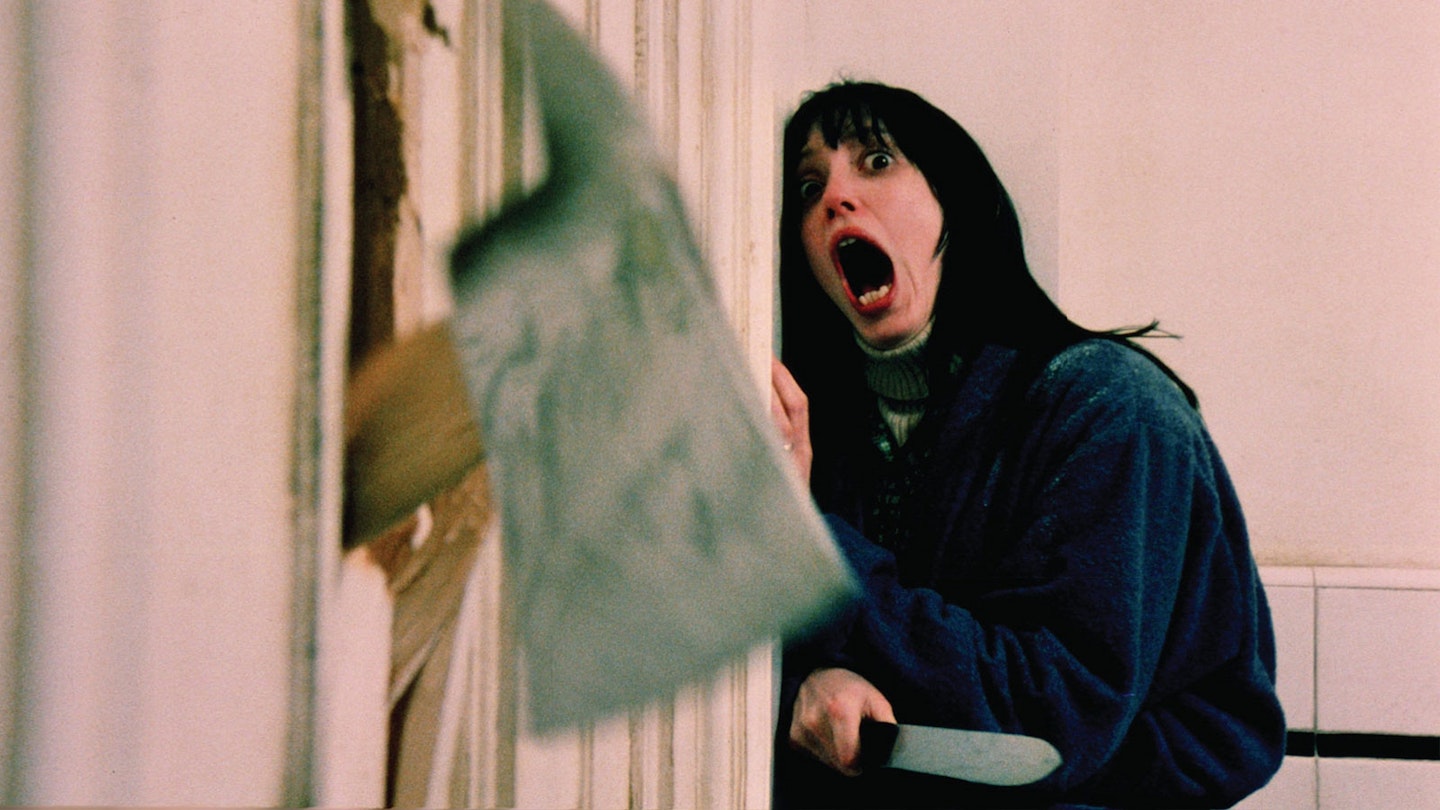As the great Sheriff Leigh Brackett once said in John Carpenter’s Halloween, “It’s Halloween. I guess everyone’s entitled to one good scare.” It’s a good line, sure. But one good scare? And only at Halloween? Talk about stingy! Here at Empire, we like to believe that you can have the bejeezus frightened out of you any day of the year, as many times as you like. Whether it’s seminal slashers, creepy killer clowns, or arthouse works of elevated horror that cut to the quick of society’s most terrifying taboos that get your heart pounding and your cheeks clenching, of this much we can assure you – you’ve come to the right place to find your next sleepless night.
At the dead of night, in an abandoned house along an old Texan dirt road, the Empire team gathered to conjure up a list of the 50 greatest horror movies ever made. From genre titans, to fun frighteners, or modern masterworks, there’ll be something here to make even the hardiest of horror connoisseurs among you double-check your doors are double-bolted by the time you’re done. So draw your salt circles, count the cutlery in your kitchen drawer, take a deep breath, and come with us as we guide you through the films that thrill us and chill us the most. Here’s Empire’s list of the 50 best horror movies…
READ MORE: The 20 Best Zombie Movies
READ MORE: The 20 Best Vampire Movies
READ MORE: The 100 Best Horror Movie Characters
50) It: Chapters One and Two (2017 & 2019)
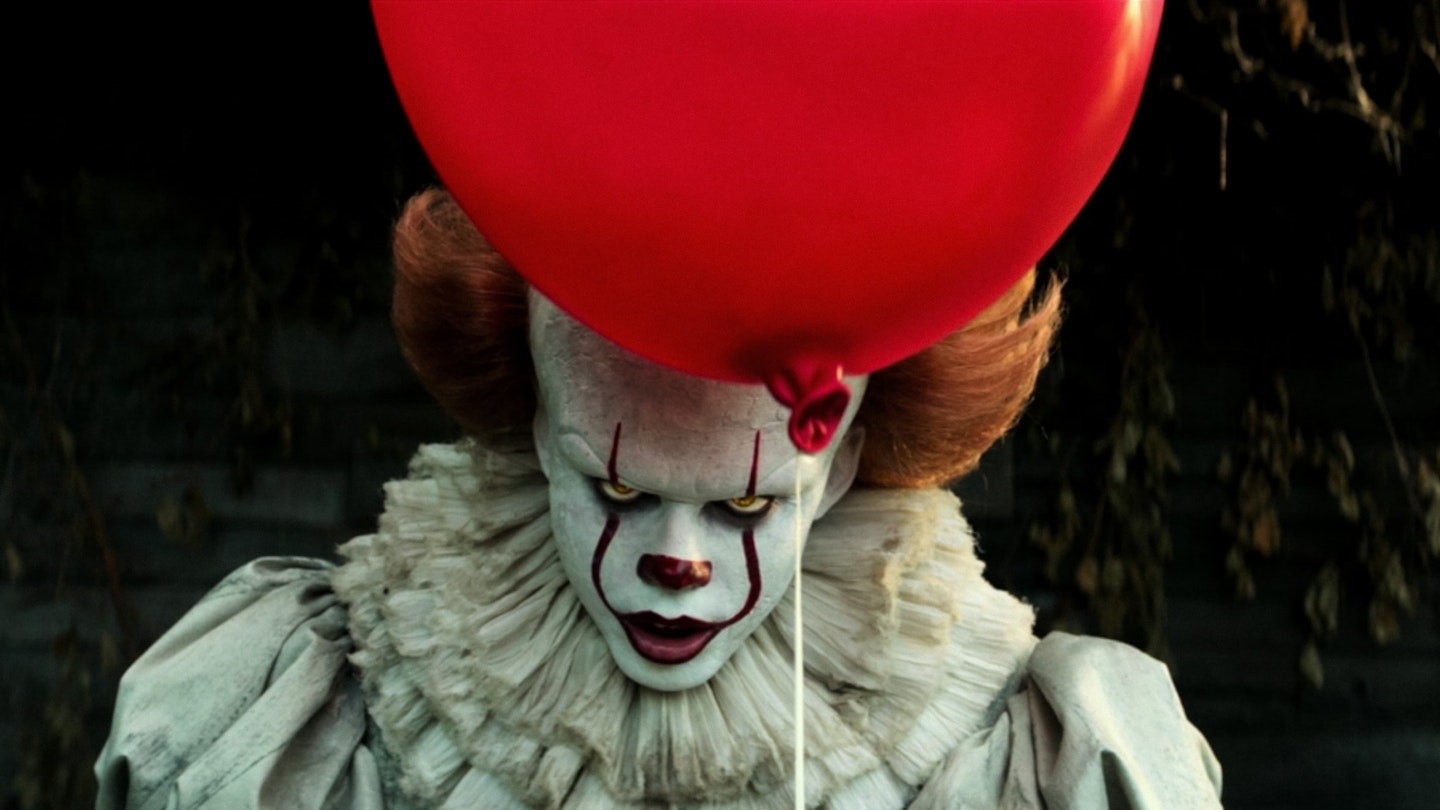
Counting both films as one – which, essentially, they are – gives us an unprecedented single six-hour epic based on Stephen King's loose, baggy, monstrous novel. Two generations, 27 years apart, share the screen time to relate the lifelong battle of the Losers' Club against unknowable evil cosmic entity Pennywise, who uses a clown as his avatar. Mad, exhausting, occasionally terrifying and surprisingly warm, just like its literary source. A future classic.
49) Saw (2004)
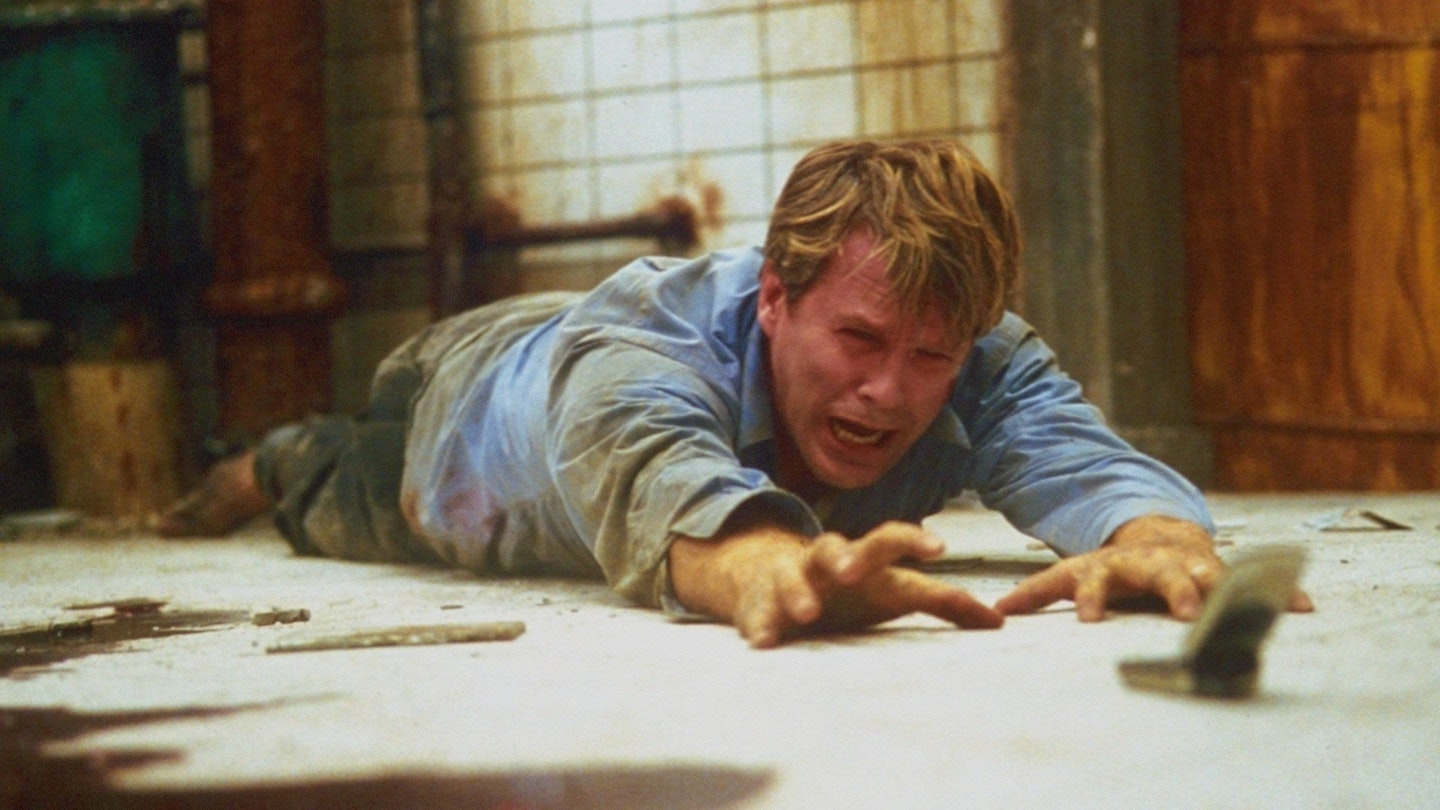
Occasionally forgotten in the wake of its many sequels, the original Saw is a cracking, gonzo low-budget shocker: stylish, well written and boasting a killer surprise at the end. While the seeds of the tortuous future instalments are sown by the police investigation happening in the background, the central premise is thrillingly lean: two strangers, locked together in a room, and they don't know why. Tell us you're not hooked.
Read the Empire review here.
48) Hellraiser (1987)
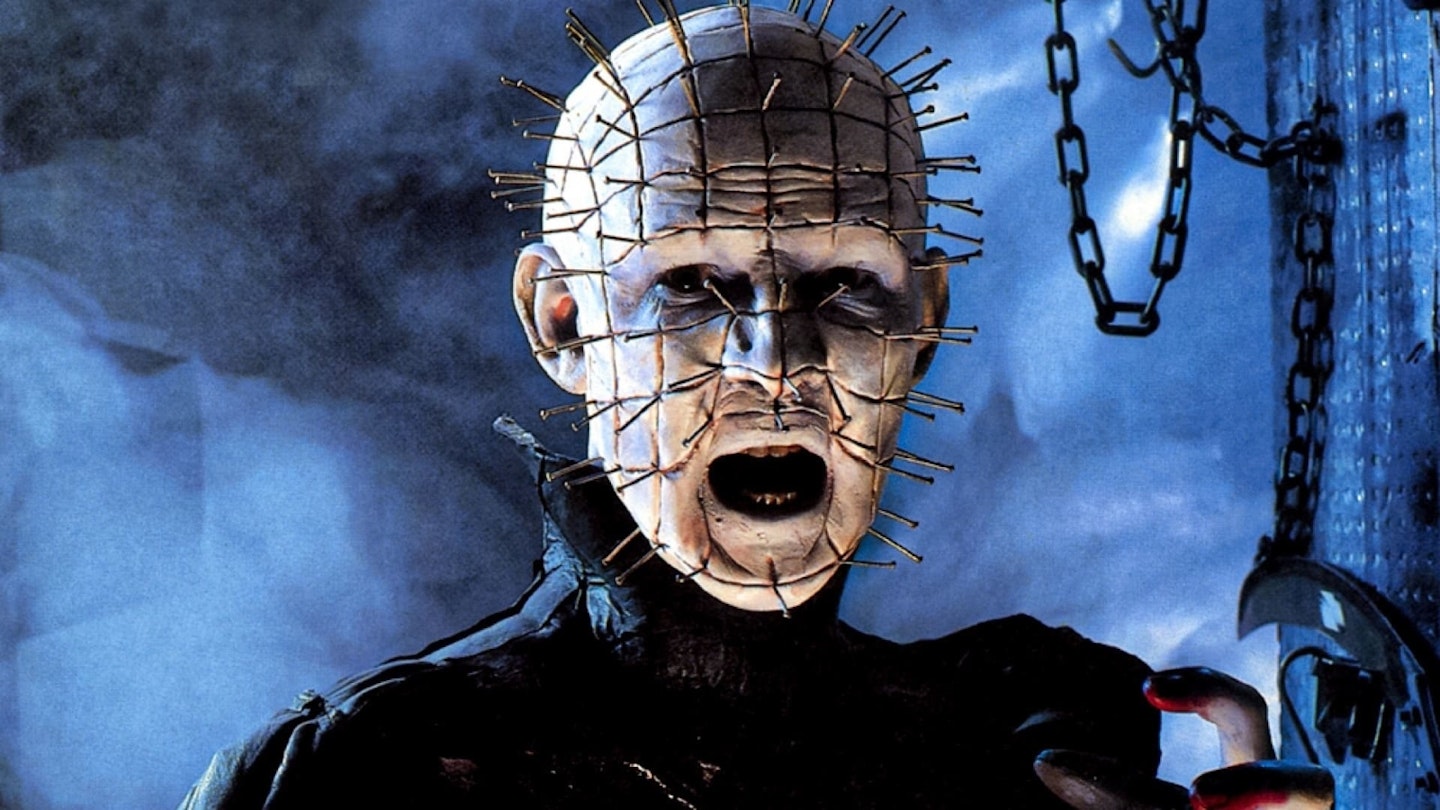
It's hard to remember now just how different Hellraiser was when it arrived in the late '80s. In a horror landscape of teens getting slashed, Clive Barker's debut as a director was an adult domestic drama, albeit with supernatural underpinnings, violence, gore and glimpses of a fascinating larger universe, the rules of which arrived almost fully formed. The sequel would dive deep into that, but here, at core, we have a love triangle and a Faustian pact: a sort of weird mashup of Marlowe and Chekhov, told with low-key visual panache. The S&M demon Cenobites – and chiefly Doug Bradley's Pinhead, obviously – get all the attention in spite of being only featured briefly. But surely the real triumph here is Uncle Frank…
Read the Empire review here.
47) Drag Me To Hell (2009)
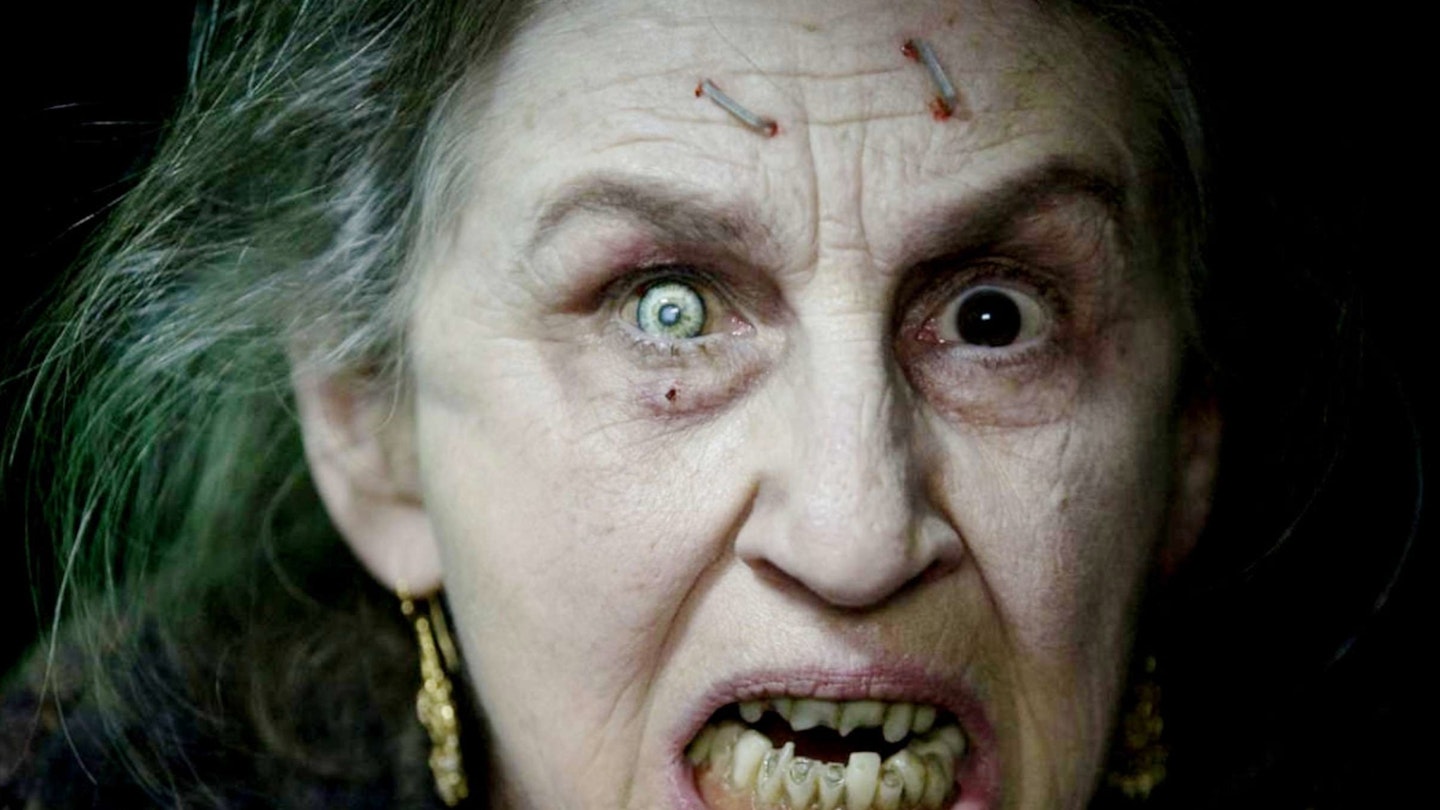
"You shaaaamed me!" rasps Lorna Raver's Hungarian gypsy at Alison Lohman's bank employee, who's made the unfortunate mistake of not granting her another extension on her mortgage. Cue a curse to end all curses: visitations from a demon called the Lamia. While the punishment doesn't seem entirely proportionate, the results offer a wild, raw and wickedly entertaining ride with Sam Raimi at his funhouse best throughout. Justin Long, the loyal hubbie on the other side of Lohman's hellish bubble, takes on the horror staple role of disbelieving agnostic. You'll want to shake him by the end.
Read the Empire review here.
46) Audition (1999)
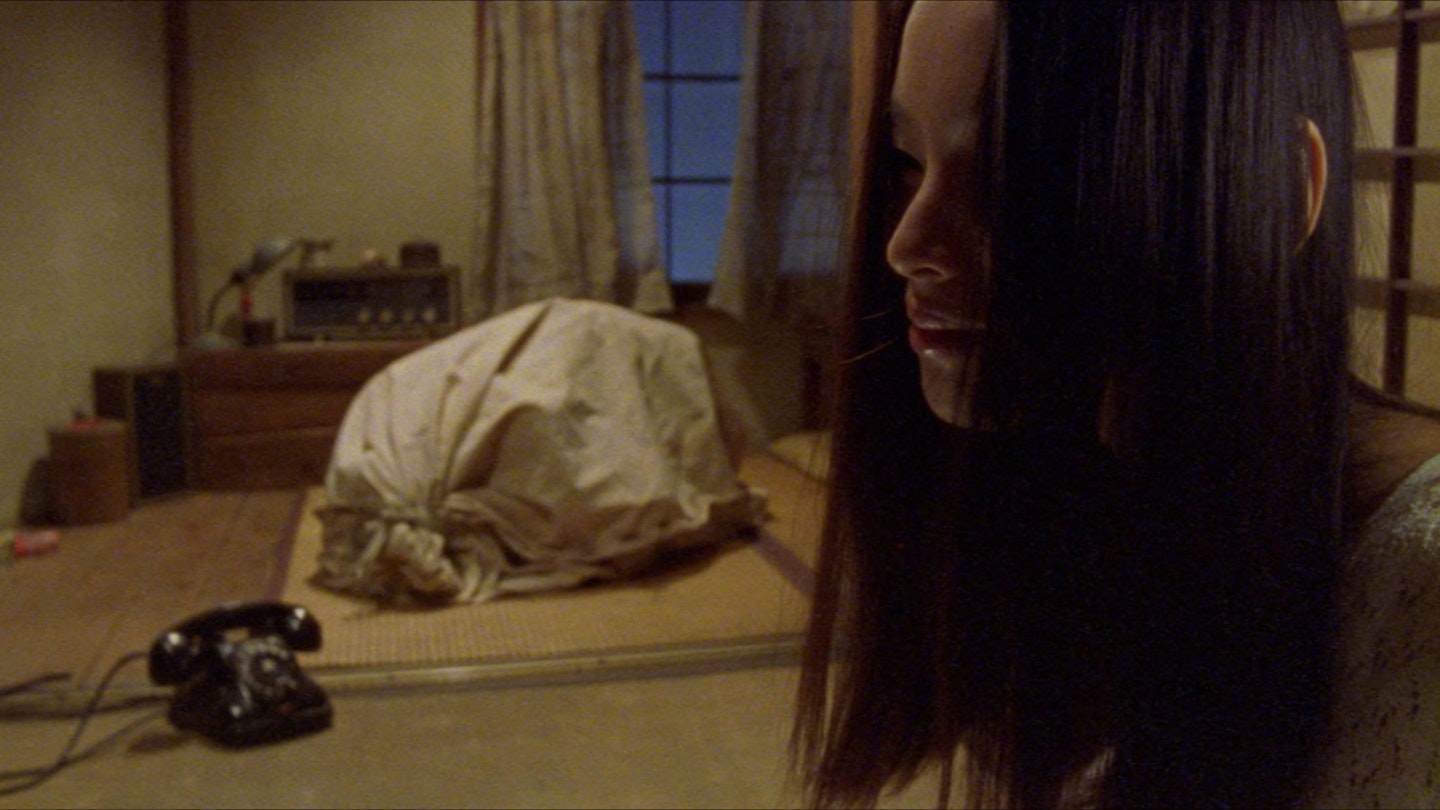
The film that broke director Takashi Miike internationally doesn't initially seem like a horror film at all. We follow a widower's attempts to get back in the dating game with a younger squeeze, via the rather dodgy and disingenuous audition process to which the title refers. And it's only when we realise the object of his desire has literally been waiting by the phone for days – apparently in an apartment empty of anything but something ominous in a sack – that we begin to realise something is very, very amiss. And then there's the foot-sawing and the eye-needles. Kiri, kiri, kiri…
Read the Empire review here.
45) Cat People (1942)
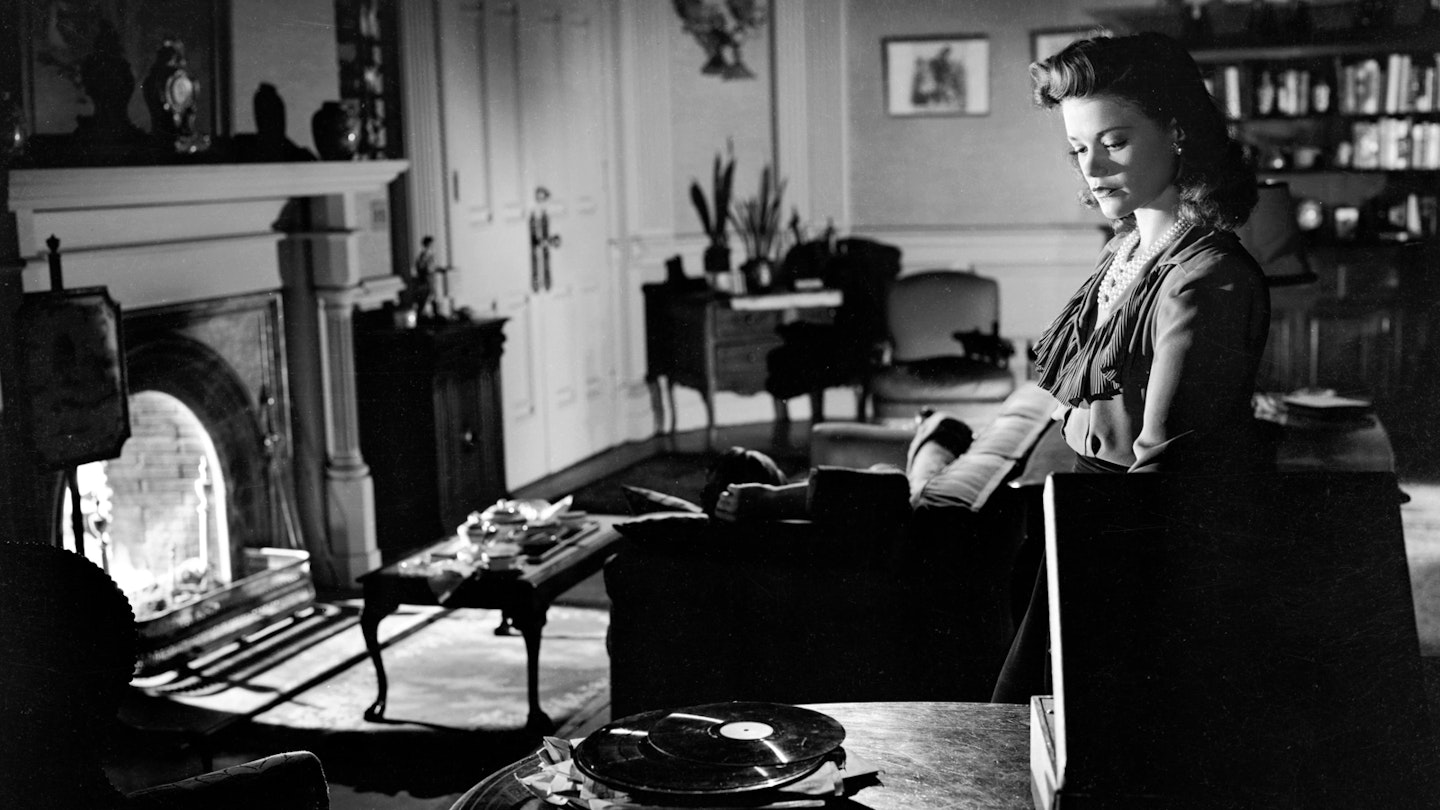
With Universal knocking out horror films like there was no tomorrow, RKO tasked producer Val Lewton with creating some similar action. The results were not what the studio expected. Far from the monster mash they'd asked for, Cat People opted for more psychological chills, and a still surprising concept centred on a woman who's afraid to consummate her marriage because of her belief that sexual climax will turn her into a panther. Paul Schrader's '80s remake took full advantage of the modern potential for FX and erotica, but Tourneur's more subtle scares are all about stalking and shadows.
Read the Empire review here.
44) The Devil Rides Out (1968)
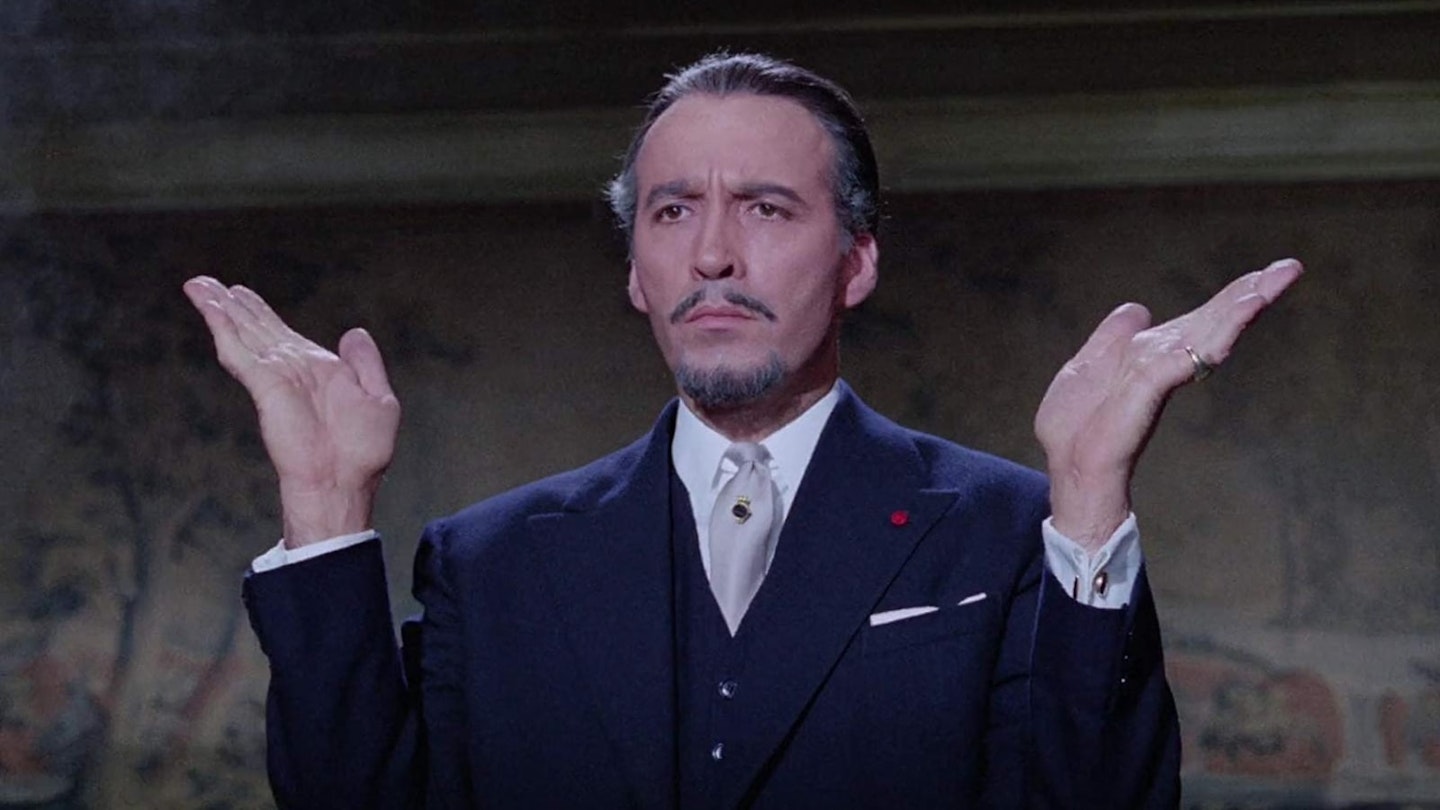
The Devil Rides Out marked a new direction for Hammer horror, swapping classic gothic fantasy for a modern Dennis Wheatley occult potboiler. Richard Matheson's cracking screenplay streamlines and improves the novel; the pacing and dialogue are sharp; and the performances, particularly from the incomparable Charles Gray and, as always, from Christopher Lee, are top notch. The studio would return to Wheatley with To The Devil A Daughter a couple of years later, but they missed a trick by never bringing back Lee's Duc de Richleau: the paranormal investigator – who brings hell down on his unsuspecting friends here – featured in eleven of the author's novels. His cases could have run and run.
Read the Empire review here.
43) A Quiet Place (2018)
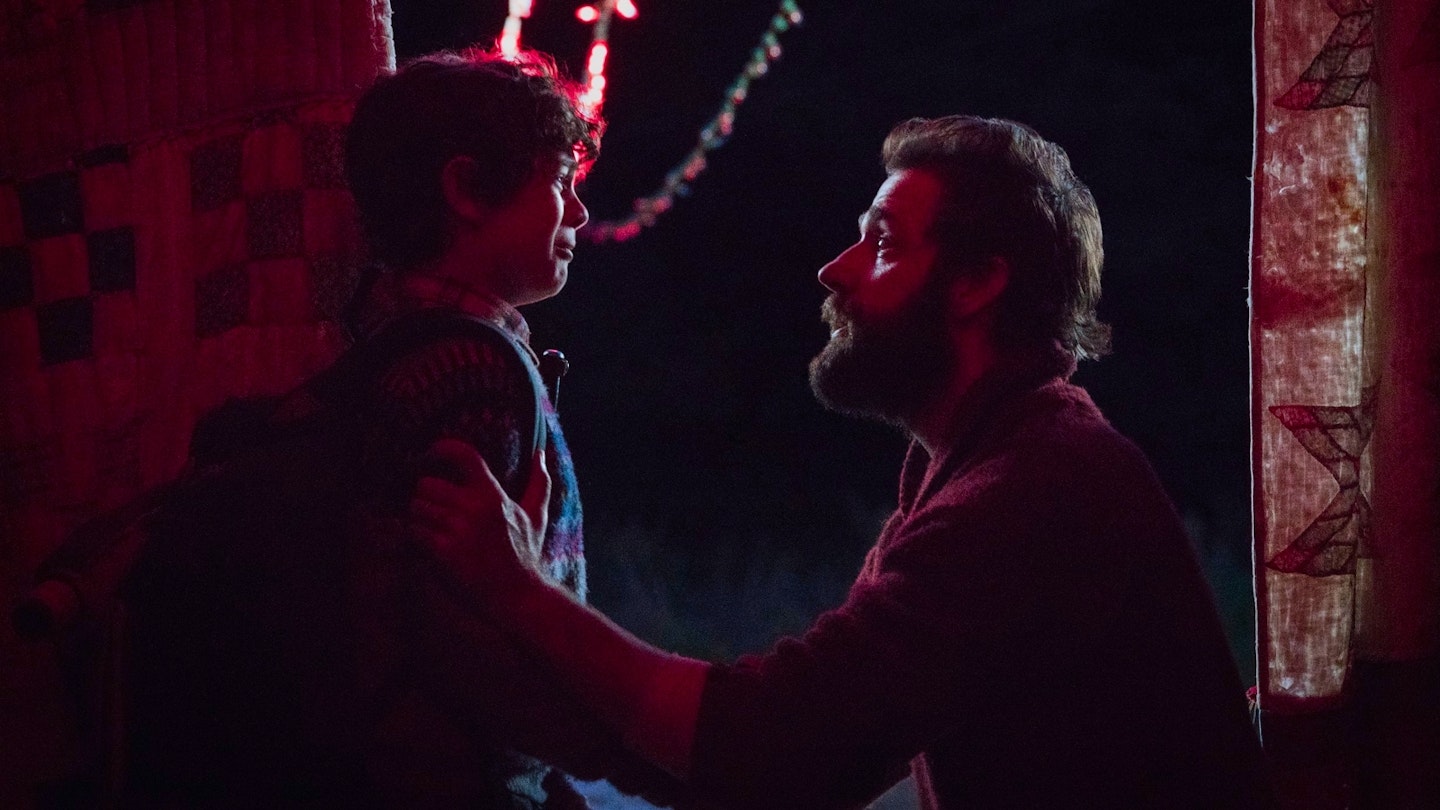
When you have kids, your whole perspective shifts – there's a big bad world out there, and the best you can hope for is to protect your children from it, or prepare them for what they'll eventually face. John Krasinski's high-concept monster movie – you make noise, you die – takes that central notion and channels the terror into a series of near-unbearably tense sequences. It's the emotional hook of Krasinski's Lee and wife Evelyn (played by Krasinski's real-life wife Emily Blunt), and their attempts to keep their kids safe, that becomes A Quiet Place's secret weapon. A film to leave you breathless, in every sense.
Read the Empire review here.
42) Kill List (2011)
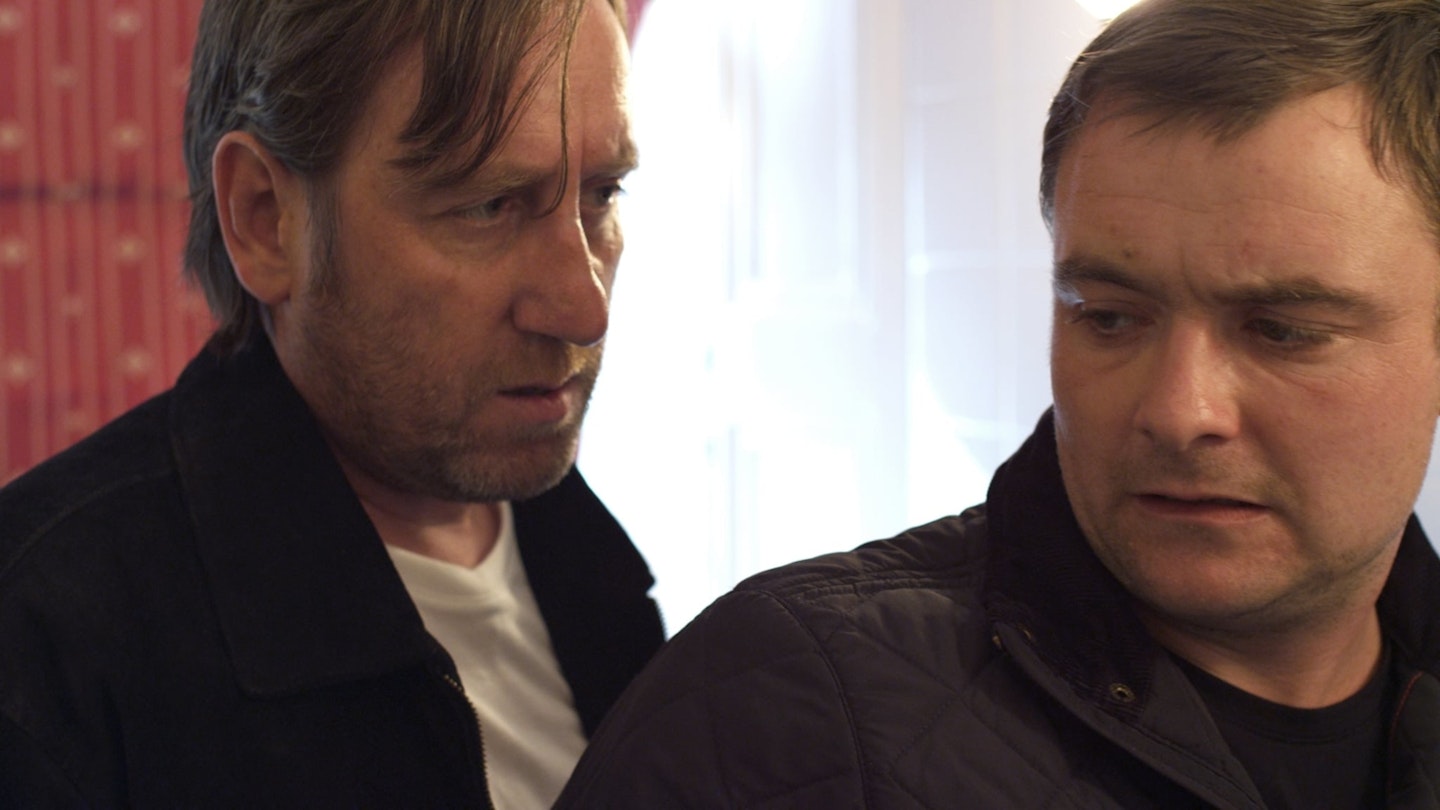
Kill List begins like a fairly straightforward thriller. Two hit men take on an assignment. They have the kill list. They have to kill them. Bish bash bosh. But as you watch, small hints of the film's true nature slowly appear. An odd symbol is scratched on a bathroom mirror. A doctor offers bizarre, medically dubious advice. The soundtrack broods like a rumbling storm cloud overhead. Ben Wheatley's masterful grip on slow-building tension – informed by his love of 1970s Brit folk-horror – crescendos to an almost unbearable, shocking finale.
Read the Empire review here.
41) Nosferatu (1922)
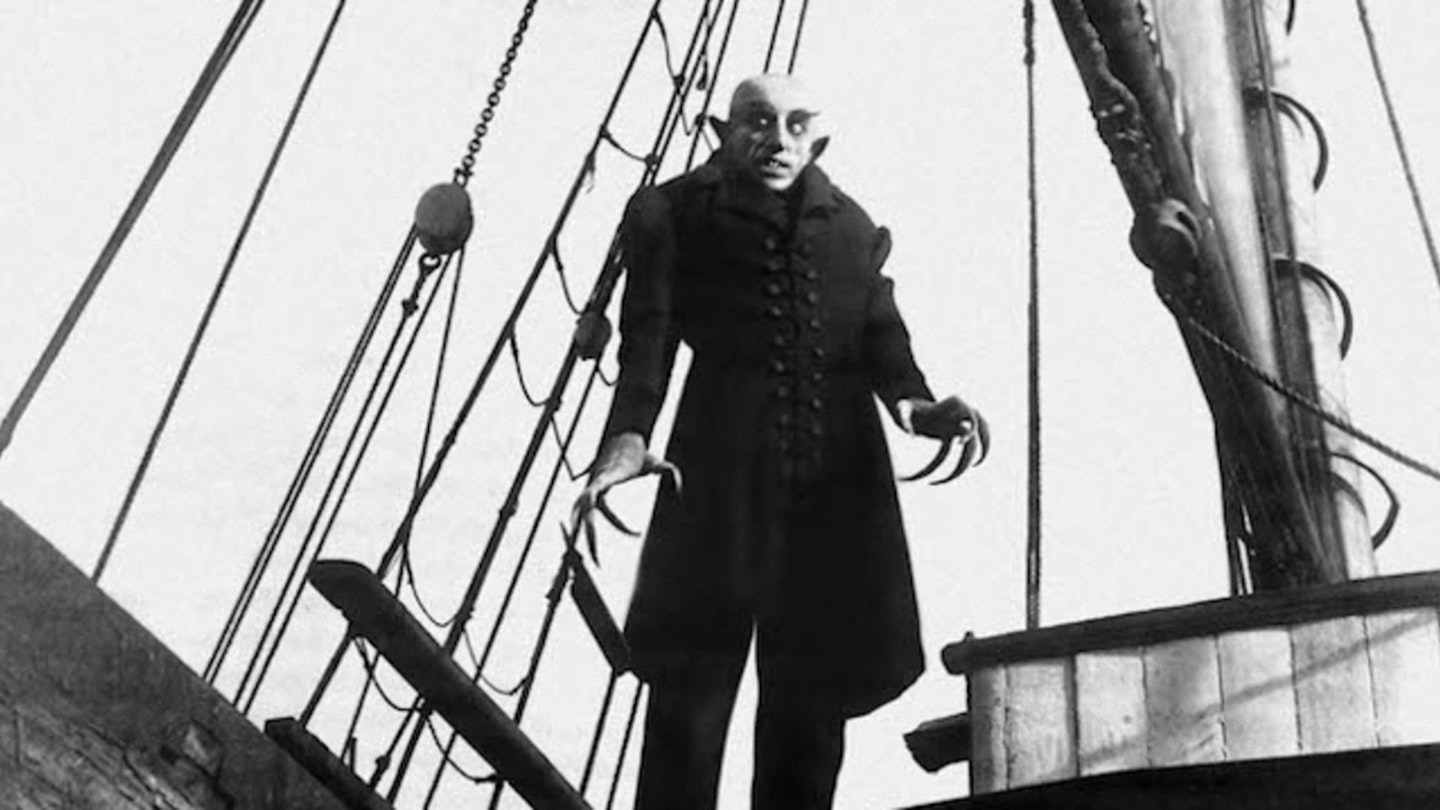
Roger Ebert once said, "To watch Nosferatu is to see the vampire movie before it had really seen itself." This is Dracula before it became cinematic legend; before Christopher Lee, before Gary Oldman, before Count Duckula. Though technically not Dracula at all – Bram Stoker's estate refused to grant the production rights – it's perhaps the quintessential incarnation of the Transylvanian vampire. But its influence, from technical innovations to Expressionistic lighting style, spreads far beyond the horror genre. The imposing shadow of Max Schreck – whose surname means "fright" in German, and whose unique visage led to all sorts of rumours about his origin – is as iconic as movies are ever likely to get.
Read the Empire review here.
40) Poltergeist (1981)
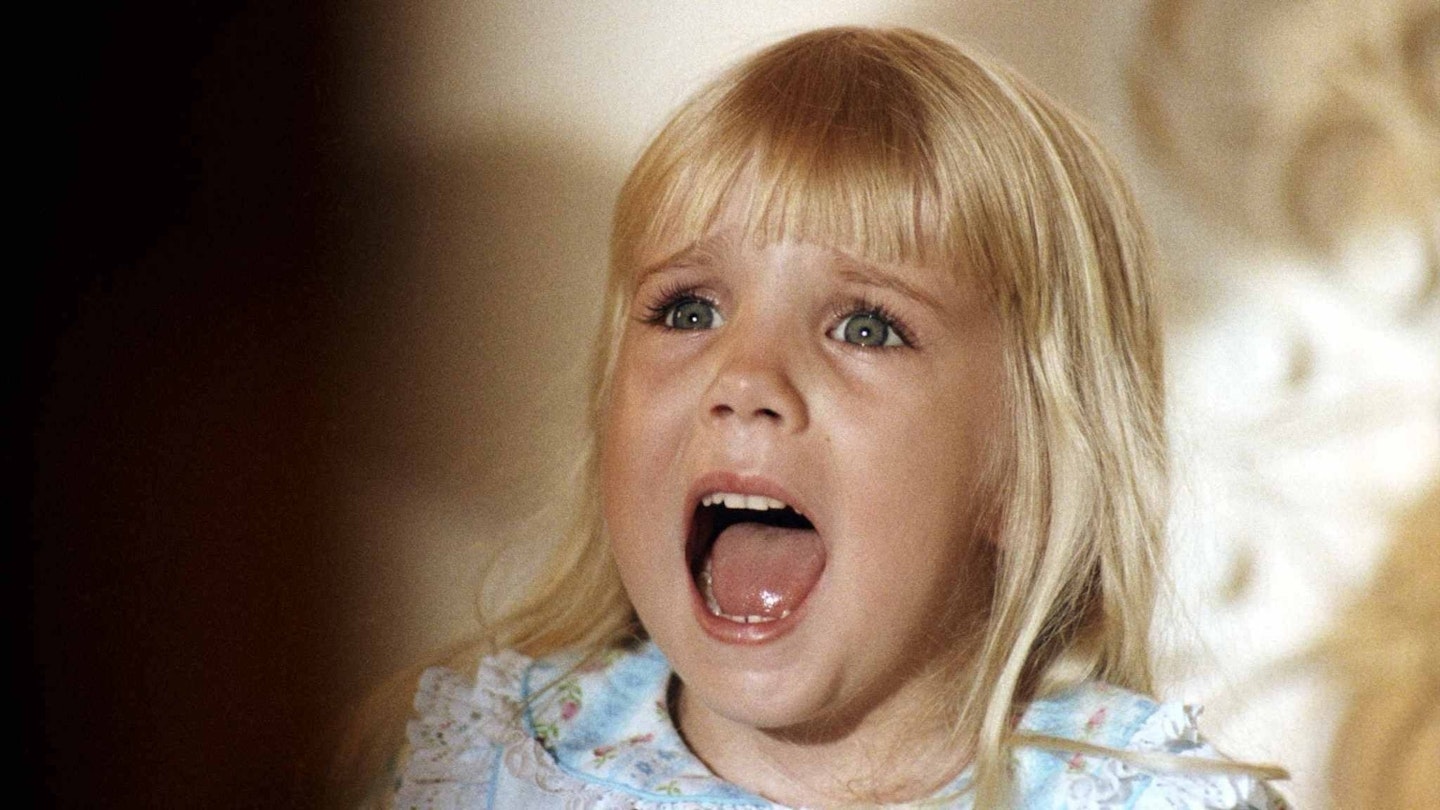
Moving into a family home on an ancient burial ground presents the kind of real estate conundrum even Kirstie and Phil would be hard-pressed to help with. The problems faced by the Freeling clan in this much-mimicked Tobe Hooper/Steven Spielberg horror involve supernatural beasties, vortexes on the landing, floating objects and some major interdimensional child-napping. That's just about every supernatural domestic catastrophe in the handbook, short of finding the Dyson is haunted and the guinea pig is Satan. Despite the restriction of its PG rating (it was initially R-rated but changed on appeal), the result remains a refreshingly scary brew.
Read the Empire review here.
39) The Conjuring (2013)
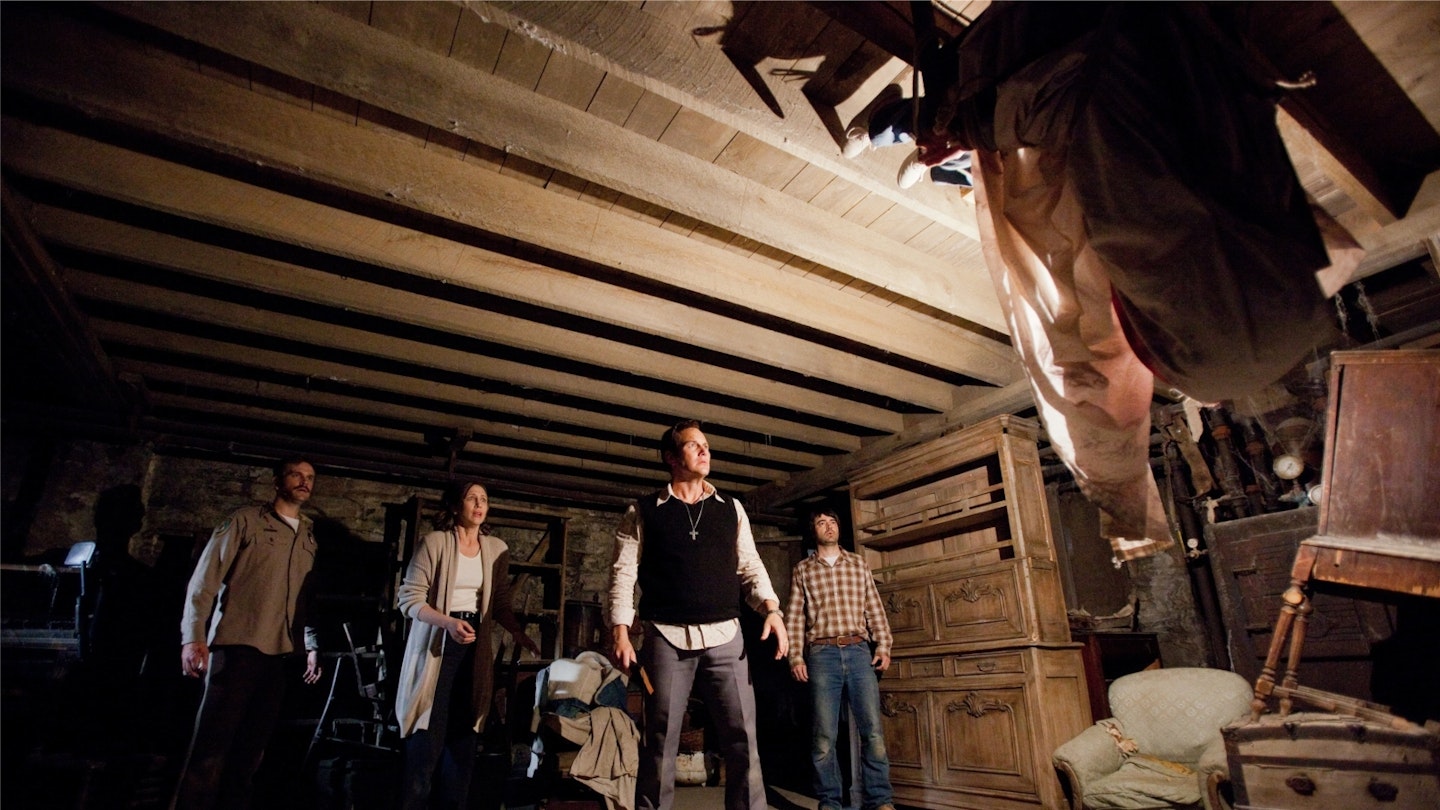
The birthplace of the TCU – The Conjuring Universe – it’s easy to forget just how great James Wan’s The Conjuring really is. Disinterested in subverting the ‘demonic possession’ subgenre, Wan instead delves into the casefiles of real life paranormal investigators Ed And Lorraine Warren (Patrick Wilson and Vera Farmiga – perfectly paired) to tell a character-driven story about a family whose farmhouse home has been invaded by the devil. The plot may be nothing new, but Wan’s approach – gently guiding us into the Warrens’ world, establishing their love for one another, and then pitting their faith in each other and God against an entity tearing their family apart – is nothing short of masterful. A precision-tooled exercise in tension and release, by the time the resident evil does surface at the film’s climax, it’s almost a relief.
Read the Empire review here.
38) Day Of The Dead (1985)
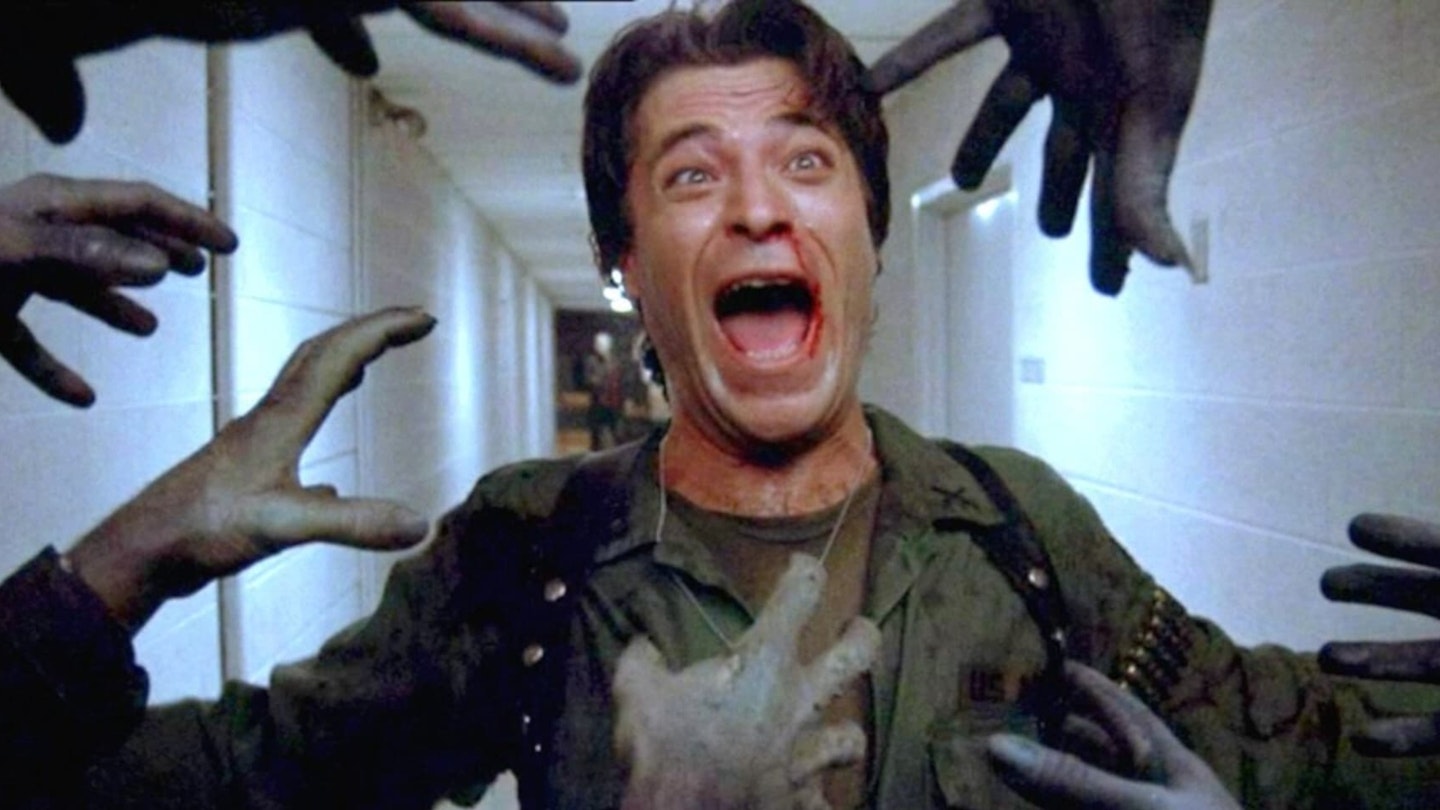
George Romero originally conceived this as "the Gone With The Wind of horror movies" before slashed budgets swiftly torpedoed his dreams of a zombie epic. No matter, the doyen of the undead merely served up another chewy allegory for humanity's doom laden with gory moments enhanced by Tom Savini's magisterial make-up designs. Following on from Dawn Of The Dead with the world in the grip of a full-scale zombie infestation, the survivors head south (in practically every sense) to a bunker in a swampy corner of Florida. There, a crazed doctor tries to turn the shufflers – including the iconic 'Bub' (Sherman Howard) – back into productive members of society. The subtext, again, is clear: the zombies are the least of our problems in a world driven by violence and greed.
Read the Empire review here.
37) Dracula (1958)
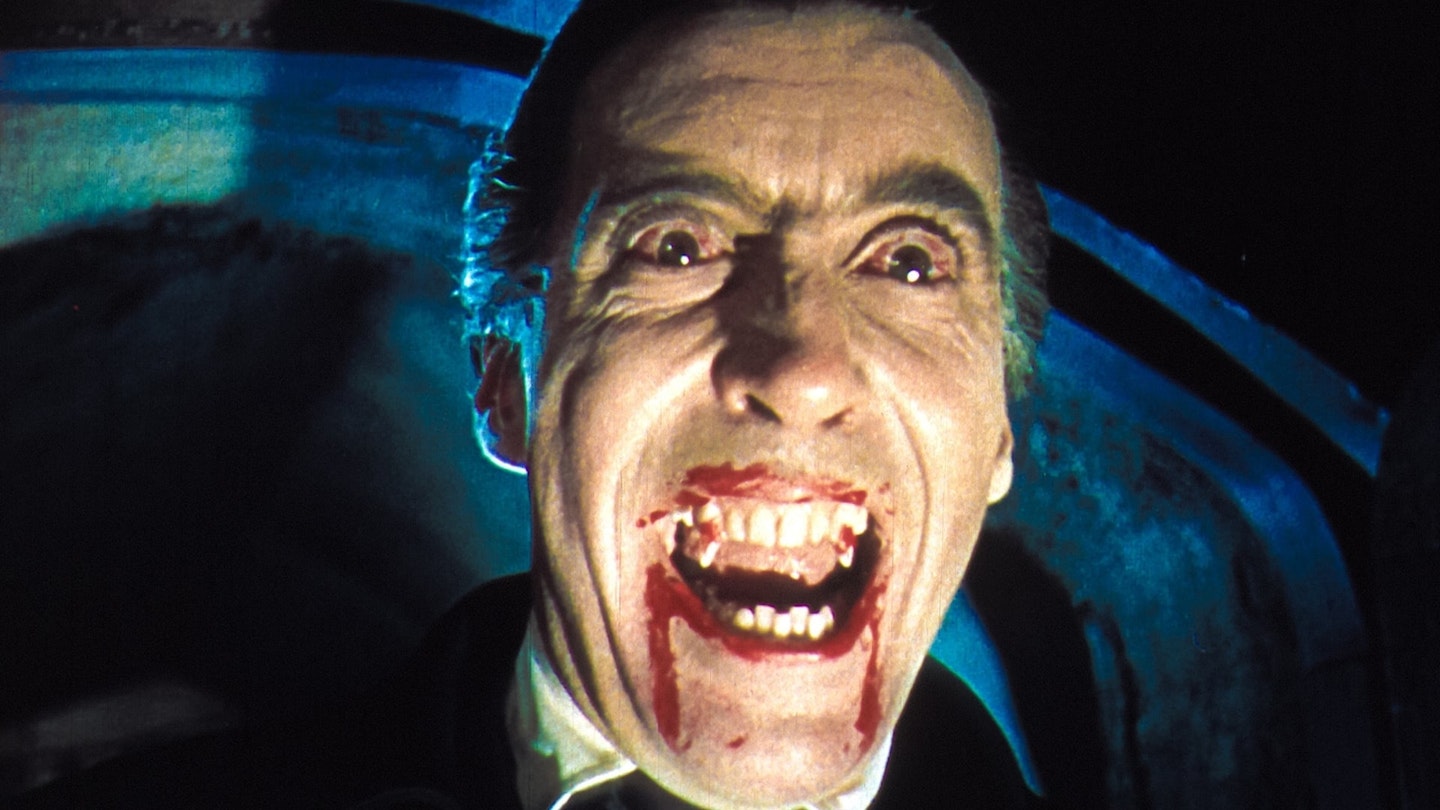
Directed by the incomparable Terence Fisher, written by Jimmy Sangster, pairing Peter Cushing and Christopher Lee (with Lee getting actual lines for the first time), and going all out for colour, glamour, sex and blood, Hammer's Dracula aligns the elements and distils the formula that powered the studio for the next two decades. Sangster's bold screenplay at once eviscerates Bram Stoker's novel and sets the narrative free. With the locations transposed and limited to Romania and half the 'dramatis personae' excised, we're left with a lean adventure. The Lugosi film is an eerie slow-burn, but Hammer's is a swashbuckler. Lee, of course, gets to be urbane and darkly seductive, but there's also genuine savagery to the moments when he gets to bare his teeth.
Read the Empire review here.
36) It Follows (2014)
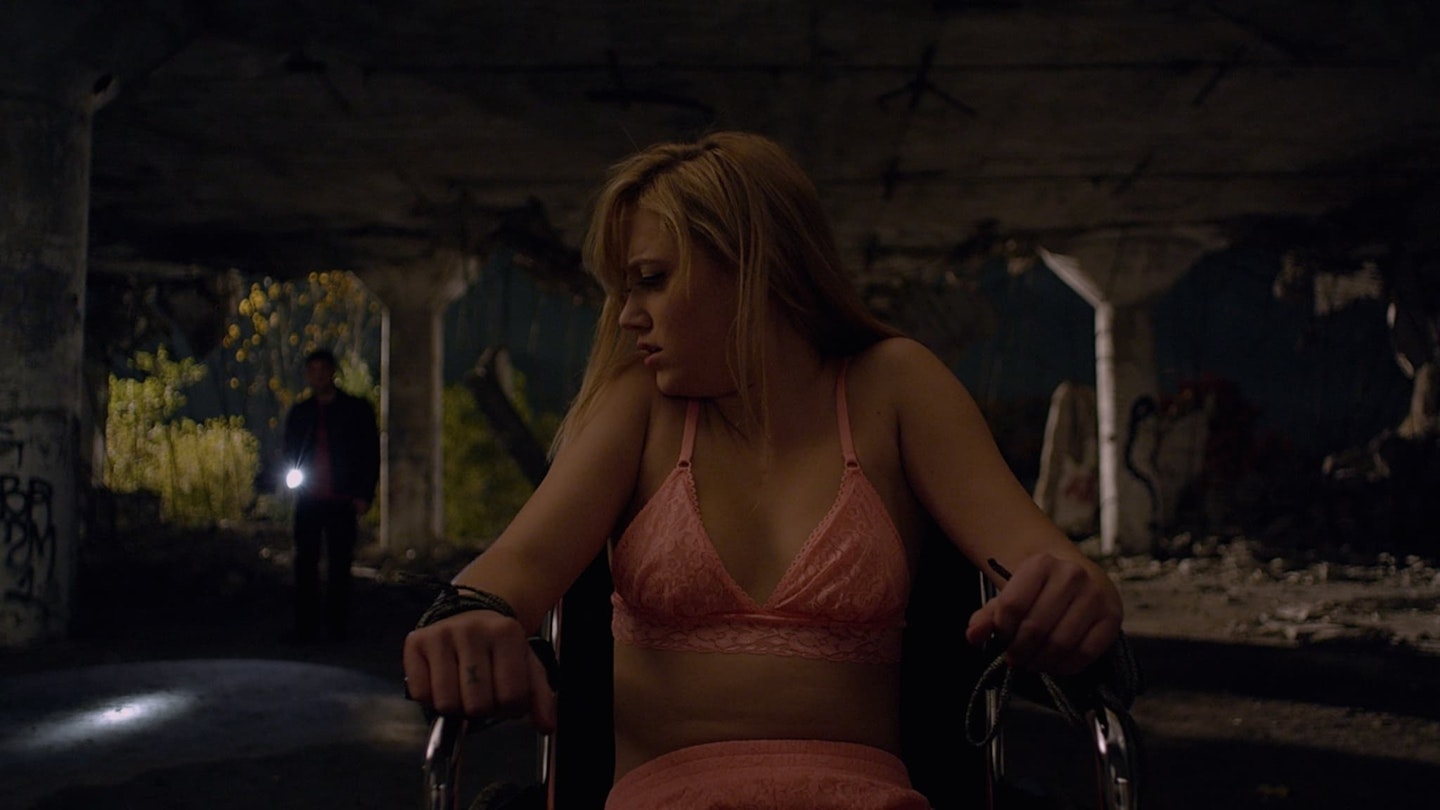
A strong contender for the best horror film of 2014, It Follows runs with its brilliant central concept and never drops the ball. We never really learn what the 'It' is, except that it's a mysterious entity that's somehow sexually transmitted, manifesting as a variety of shuffling injured strangers, or sometimes as people known to the victims it inexorably pursues. It's an interesting twist on the slasher movie ‘promiscuous teens get killed’ trope, with the wrinkle that if you find yourself affected, you can just shag someone else and get rid of it, like a chain letter. That rule takes the film to some very dark places.
Read the Empire review here.
35) Hereditary (2018)
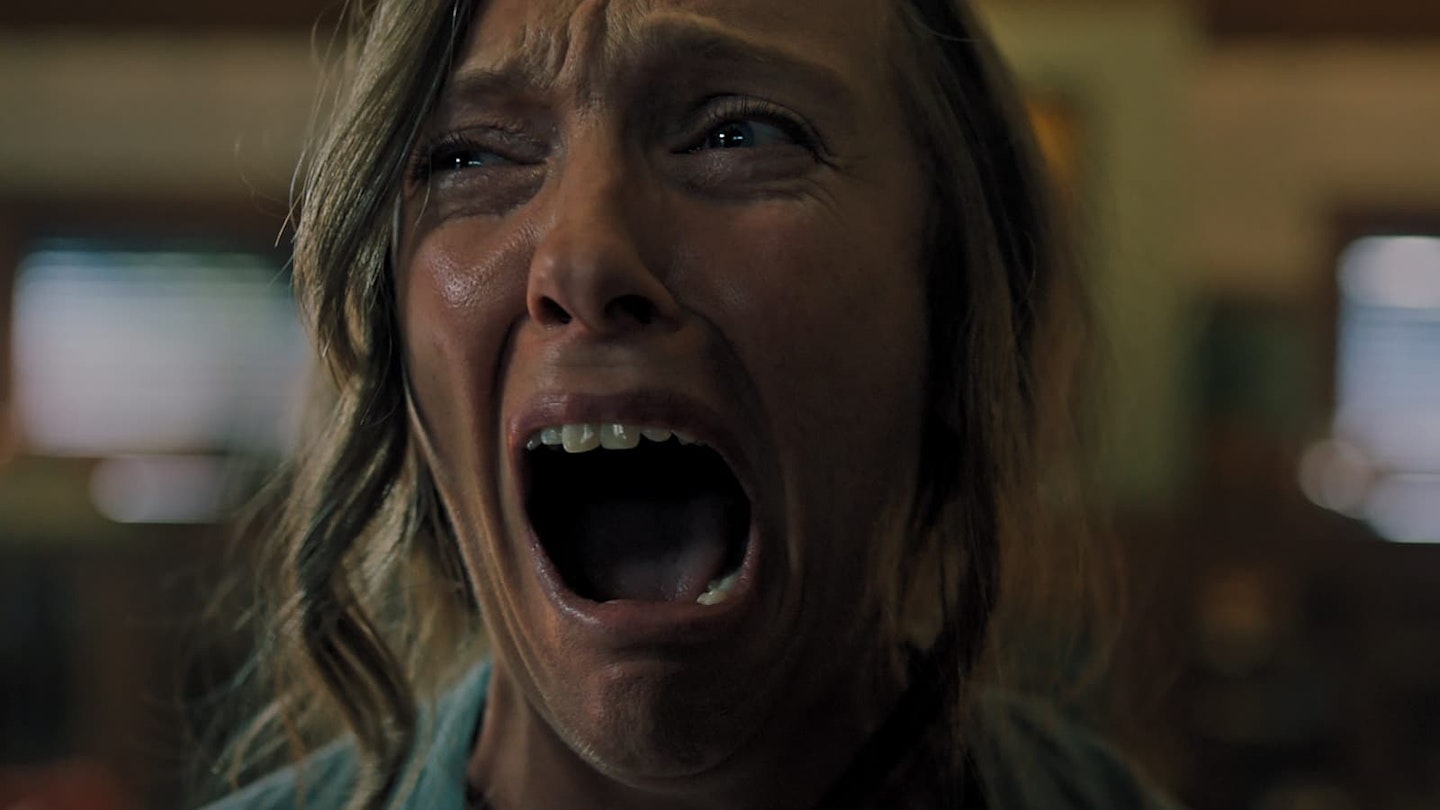
There are some traditional frights in Hereditary – jumpy moments, squirmy tension, and unsettling imagery. But it’s the gut-wrenching emotional horror that stays with you – the very worst possible thing happening, the guilt of it, the devastation that ripples out and affects everyone around you. Aster delivers a heart-crushing rug-pull in his debut feature that is genuinely unforgettable – and from there he ramps up the bumps in the night, the body-horror, and the spine-tingling creepiness like a nightmare that just won't end. Its ending has proven divisive, but whatever your thoughts on the final reel, it's a shattering experience along the way.
Read the Empire review here.
34) The Fog (1980)
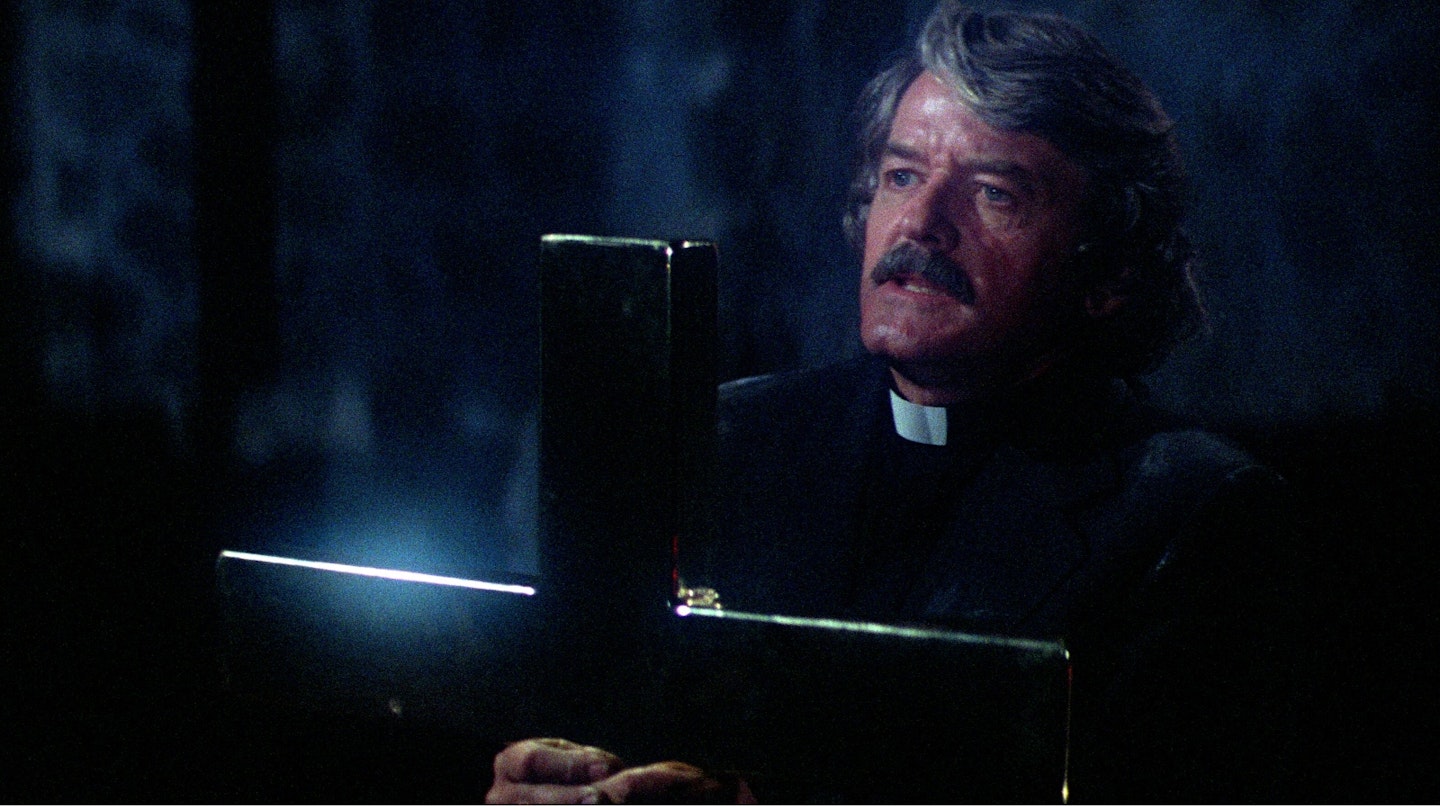
A chilly yarn about ghost pirates exacting their revenge on a small coastal town, The Fog is so explicitly a campfire tale that it even begins with a scout troop sitting around a seaside blaze, with time for just one more story. Carpenter's follow-up to the classic Halloween saw some post-production tinkering to make the scares more explicit, and when you know that you can definitely spot the reshoot joins. But it doesn't affect what remains perhaps Carpenter's most purely atmospheric film.
Read the Empire review here.
33) The Babadook (2014)
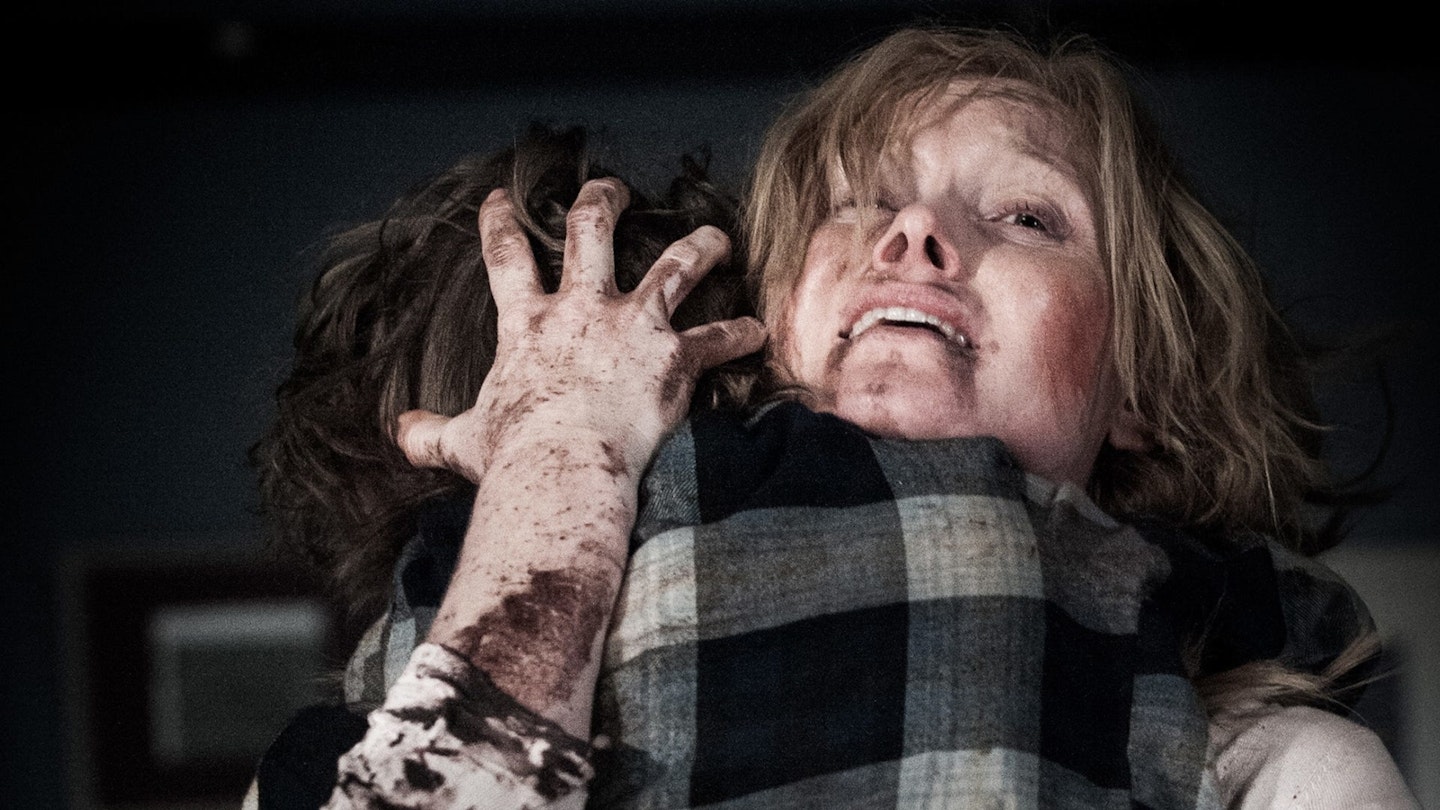
Slightly mis-sold by a trailer that made it look like a standard – though impressive – monster movie, The Babadook's greatest trick is in not really being about the titular thing at all. Rather, it's a film about a mentally-unravelling mother's difficult relationship with her young son. The 'dook itself is just another spanner in the works. Subverting expectations, the film seems to set up Amblin-style hijinks from a resourceful kid, but those elements never come to pass, and his backpack of tricks is ultimately useless. The rules are right there in creepy storybook: you can't get rid of the Babadook. The eventual solution for its defeat – but not eradication – is something like genius.
Read the Empire review here.
32) The Bride Of Frankenstein (1935)
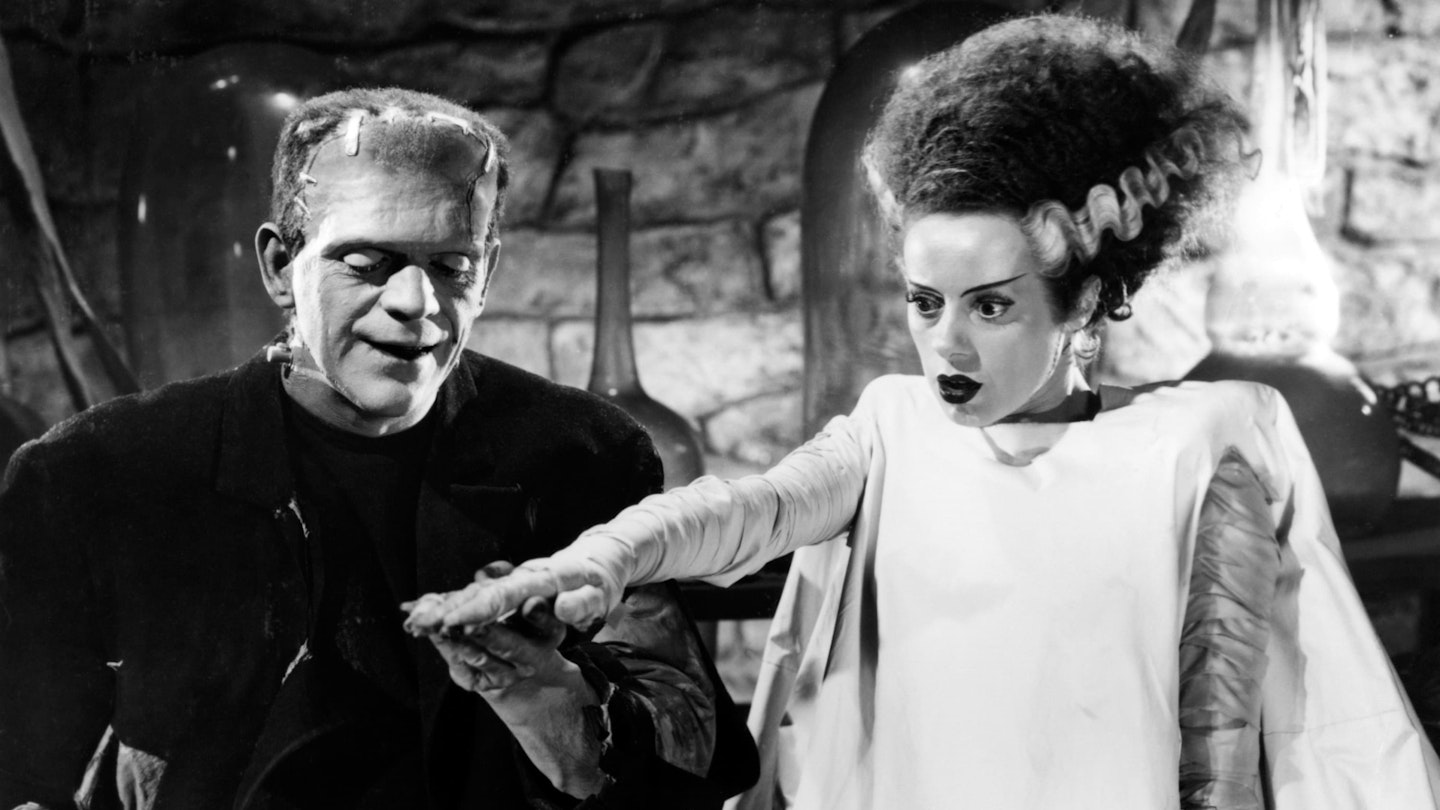
James Whale's sequel to his own original Frankenstein reunites the director with Boris Karloff's classic monster and with Colin Clive's hapless scientist: this time tasked with creating a mate for the creature. As before, there's immense pathos in the monster's plight – ultimately rejected by his stunning, shock-haired "bride" Elsa Lanchester. But there's more mischievous wit in the second outing, largely thanks to Ernest Thesiger's cherishably waspish Doctor Pretorius. "Yes," he observes dryly at the reveal that the monster can now speak. "There have been developments..."
Read the Empire review here.
31) Raw (2016)
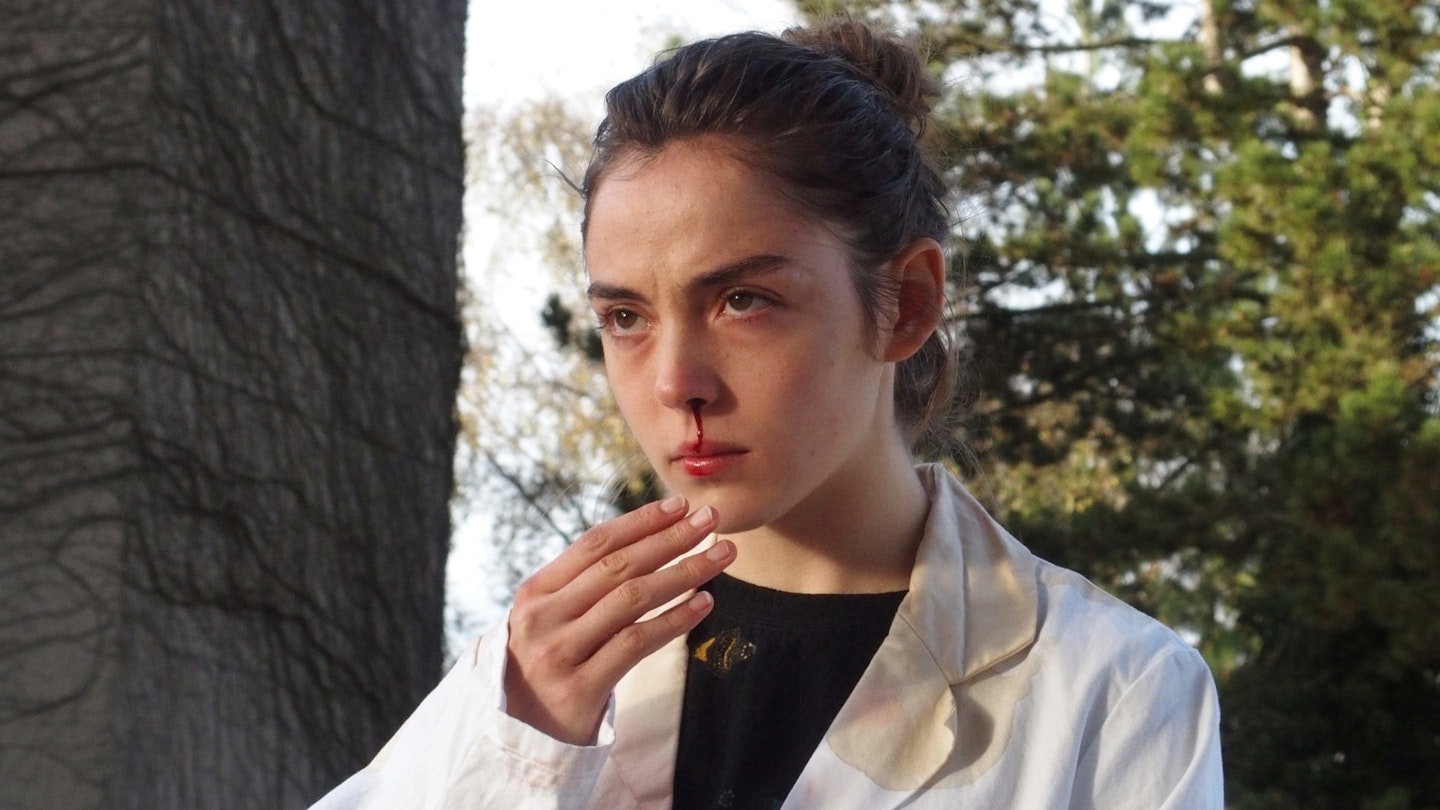
A French flesh-munching art-horror that really sticks in your teeth, Julia Ducournau's film manages to be a full-blooded horror, a darkly funny family drama, and a coming-of-age film all in one. When Justine begins a veterinary course at university – where her older sister also studies, and where her parents first met – she's battered and bewildered by a series of initiation rituals. It's not long before her stringent vegetarianism is replaced by an unstoppable craving for meat, leading to some truly nauseating developments. Shocking, unrestrained, and strikingly original, Raw is a rich, layered meal of a film for anyone who can stomach it.
Read the Empire review here.
30) Dracula (1931)
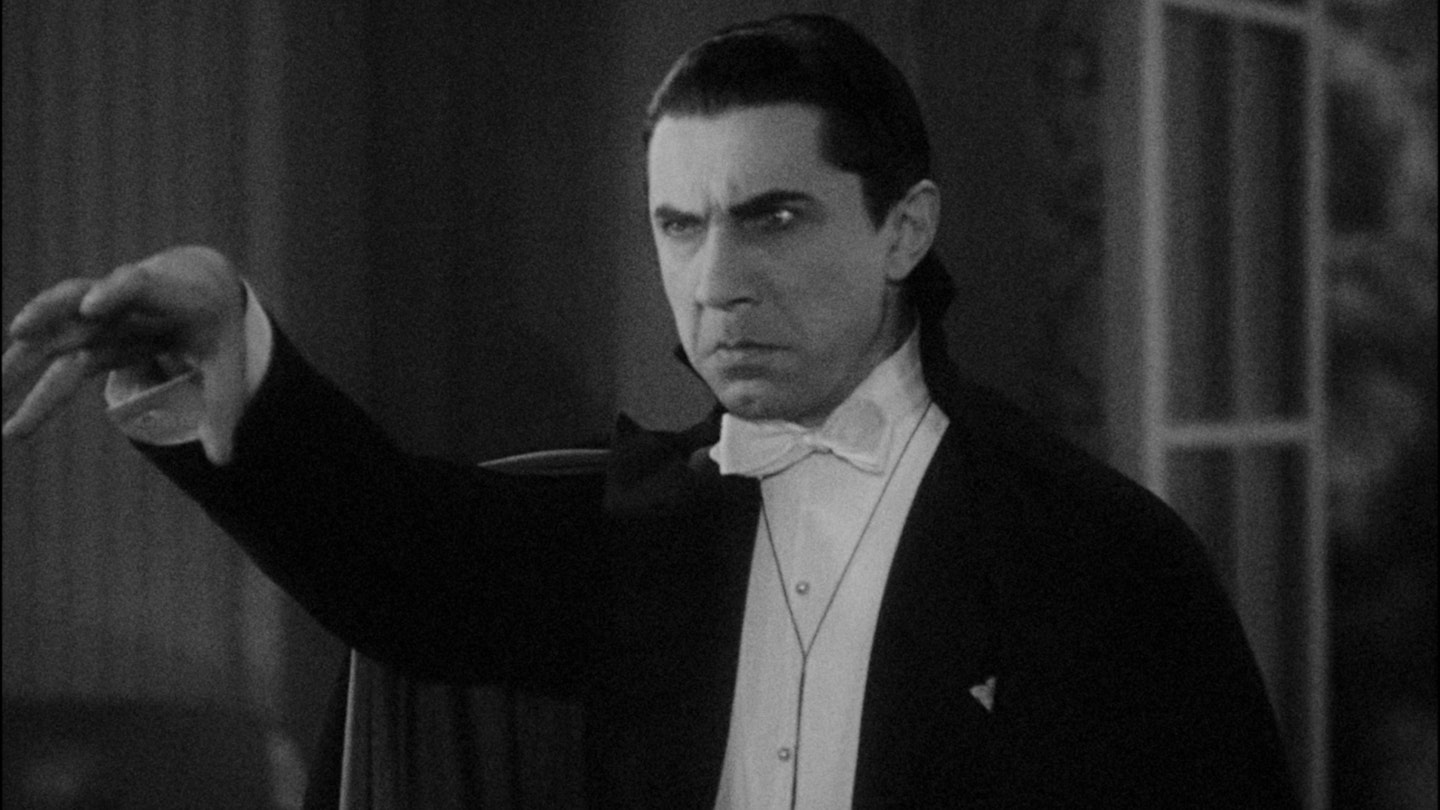
Though perhaps creaky by today's standards, Tod Browning's Dracula remains seminal for its place in horror history, as well as for its eerie central performance by Bela Lugosi and the scene-stealing of Dwight Frye. The film is strongest in its opening stretch, as Frye's Renfield visits the stunning, colossal set of Dracula's castle, meets the sombre count – dwarfed by his cobwebbed surroundings – and falls foul of the vampire's ethereal brides: a sequence of exquisite beauty. Subsequently it's a bit more plodding, and the ending is oddly rushed. But there are still unforgettable elements along the way. Well worth watching with Philip Glass' 1999 score – unless you prefer the almost-silence of the original.
Read the Empire review here.
29) Midsommar (2019)
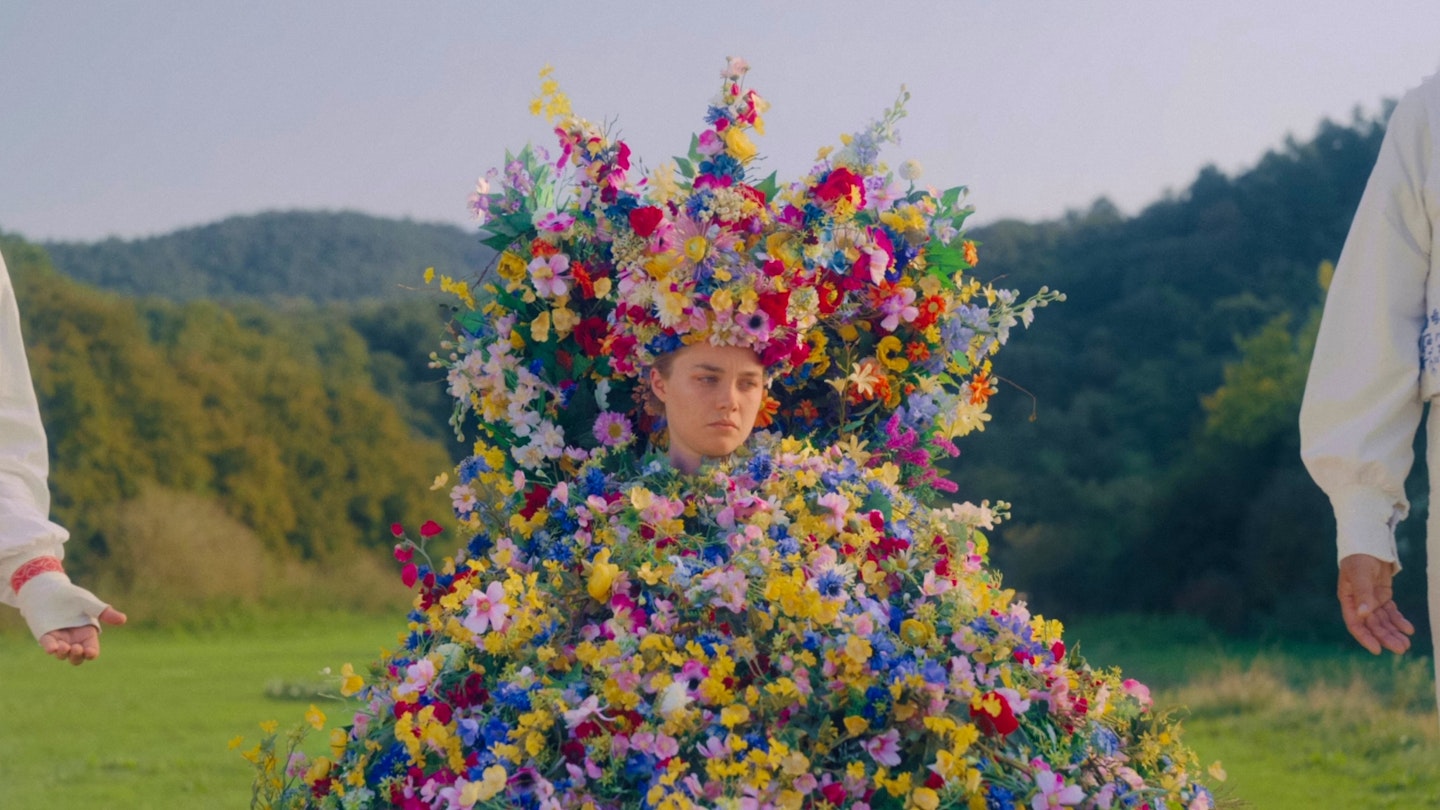
After the sheer, unrelenting darkness of Hereditary, just one year later, writer-director Ari Aster stepped out into the bright sunlight – and made that utterly terrifying too. Midsommar's sun-bleached visuals are just as nightmarish, pitching everything into the realm of the uncanny as Florence Pugh's grief-stricken Dani loses her grip on reality at a festival hosted by Swedish cultists. As with his previous film, Aster grounds the horror in emotional devastation – this time in a searing deconstruction of a toxic relationship, as Jack Reynor's cowardly boyfriend Christian backs out of breaking up with Dani when she suffers a sudden family tragedy. Creepy, deeply unsettling, with brutally gory jolts – and an undeniable sense of beauty. Just bear witness to its instantly iconic flower-wreathed finale.
Read the Empire review here.
28) Don't Look Now (1973)
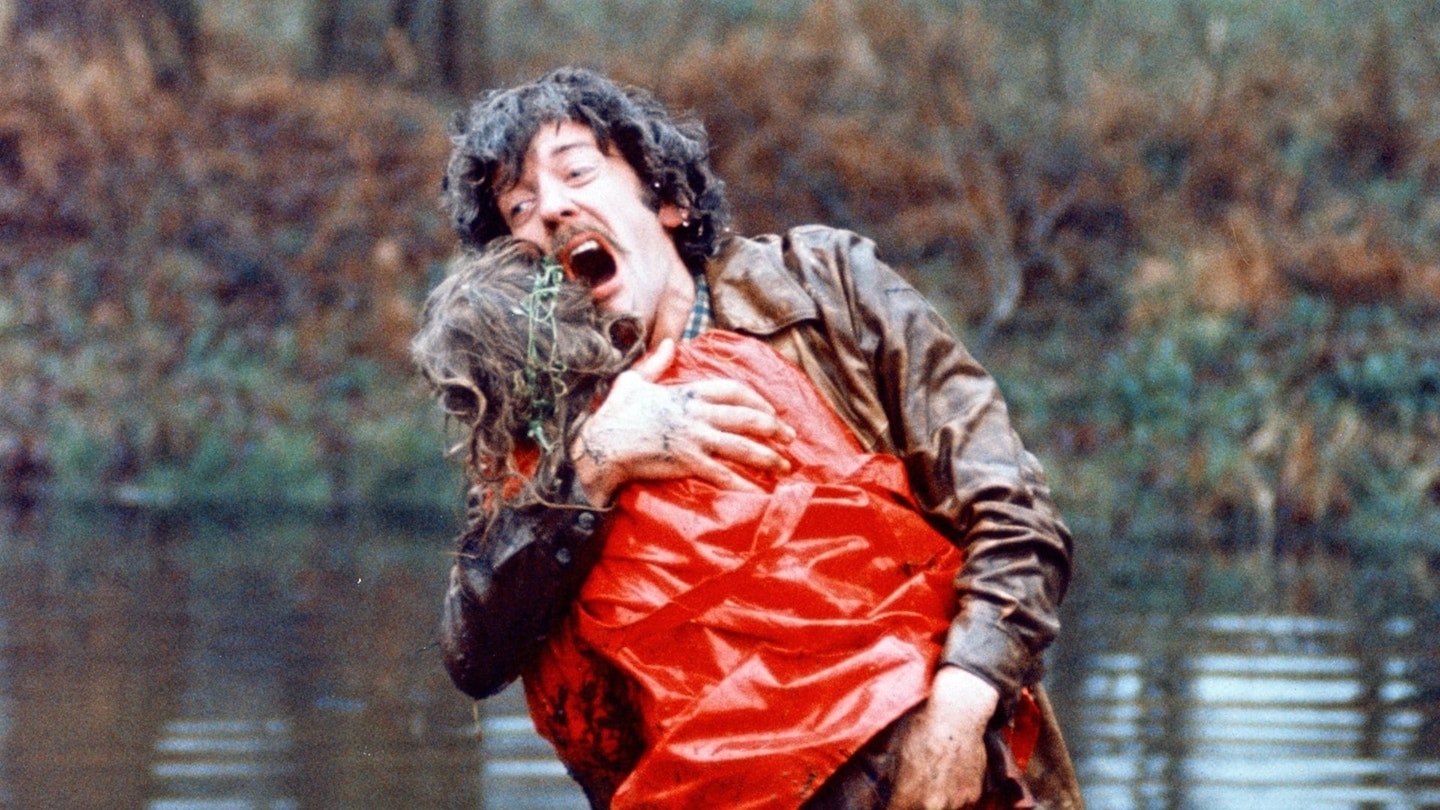
Nic Roeg's hugely influential take on Daphne du Maurier's short story is more than just a simple horror movie. It's also a moving and insightful study of marriage, particularly the way it creaks like the hull of a ship under the duress of loss and grief. But, yes, ultimately it's scary in a way that's cranked up several notches by its eerie backdrop of Venice in off-season, weird encounters with spiritualists, and that red-coated hobgoblin. Julie Christie (lost in her grief for her drowned daughter) and Donald Sutherland (adrift in his) are note-perfect as the central couple, but Roeg's direction and editing – particularly in the famous sex scene – lend the movie the feel of a beautiful but shattered mosaic.
Read the Empire review here.
27) Let The Right One In (2008)
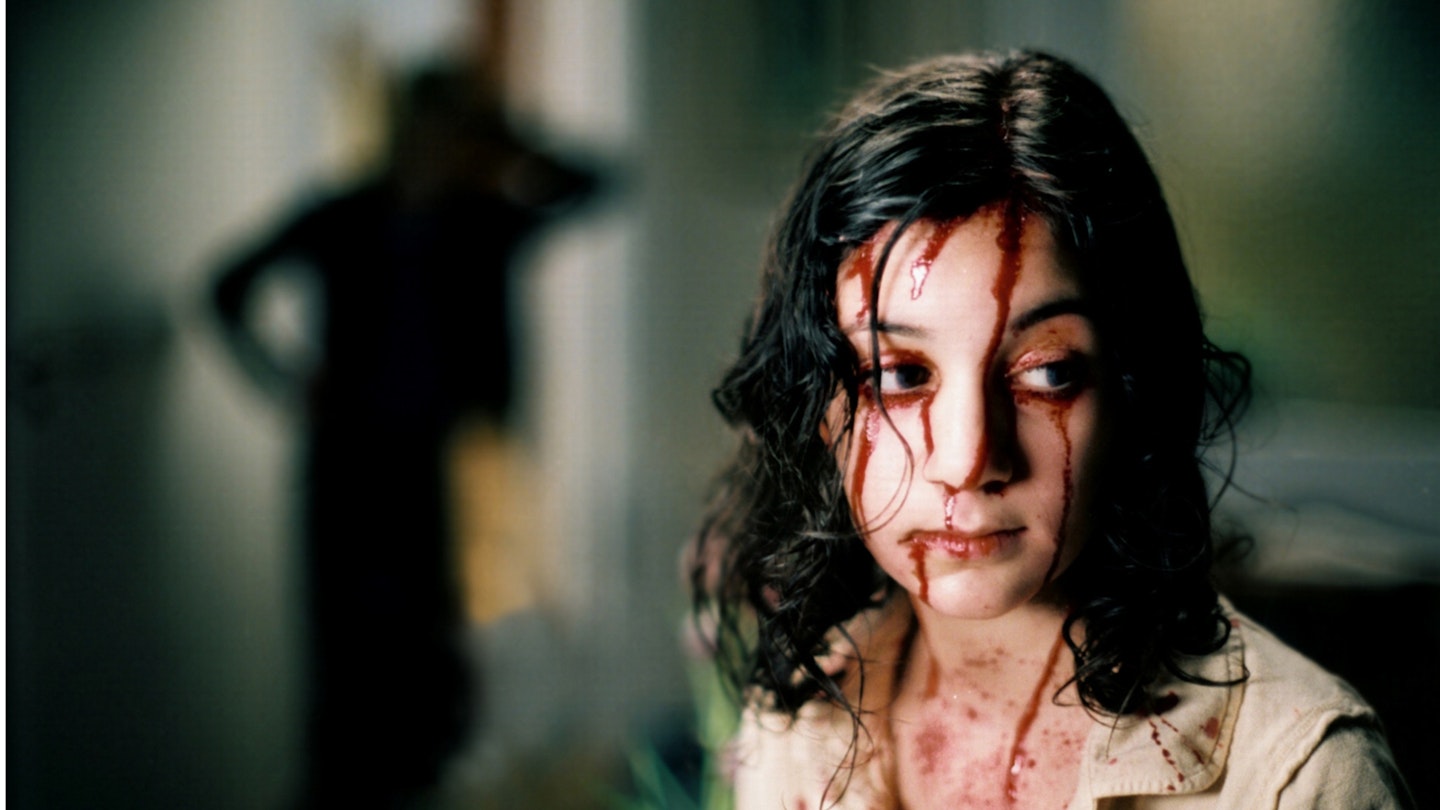
We all know children are terrifying, but Let The Right One In takes spooky kids and makes them almost too relatable for comfort. Simply trying to survive like countless vampires before her, Eli (Leandersson) strikes up a bittersweet friendship with social pariah Oskar (Hedebrant), offering him salvation from his less-than-ideal home situation. Based on John Ajvide Lindqvist's bestseller and set in Stockholm, it's not just the threat of being offed by a vampire that make this an incredibly effective Scandi scarefest, with themes of loneliness, anxiety and alcoholism helping it slip effortlessly into your bloodstream. It's no surprise Hollywood clamoured for a remake.
Read the Empire review here.
26) The Innocents (1961)
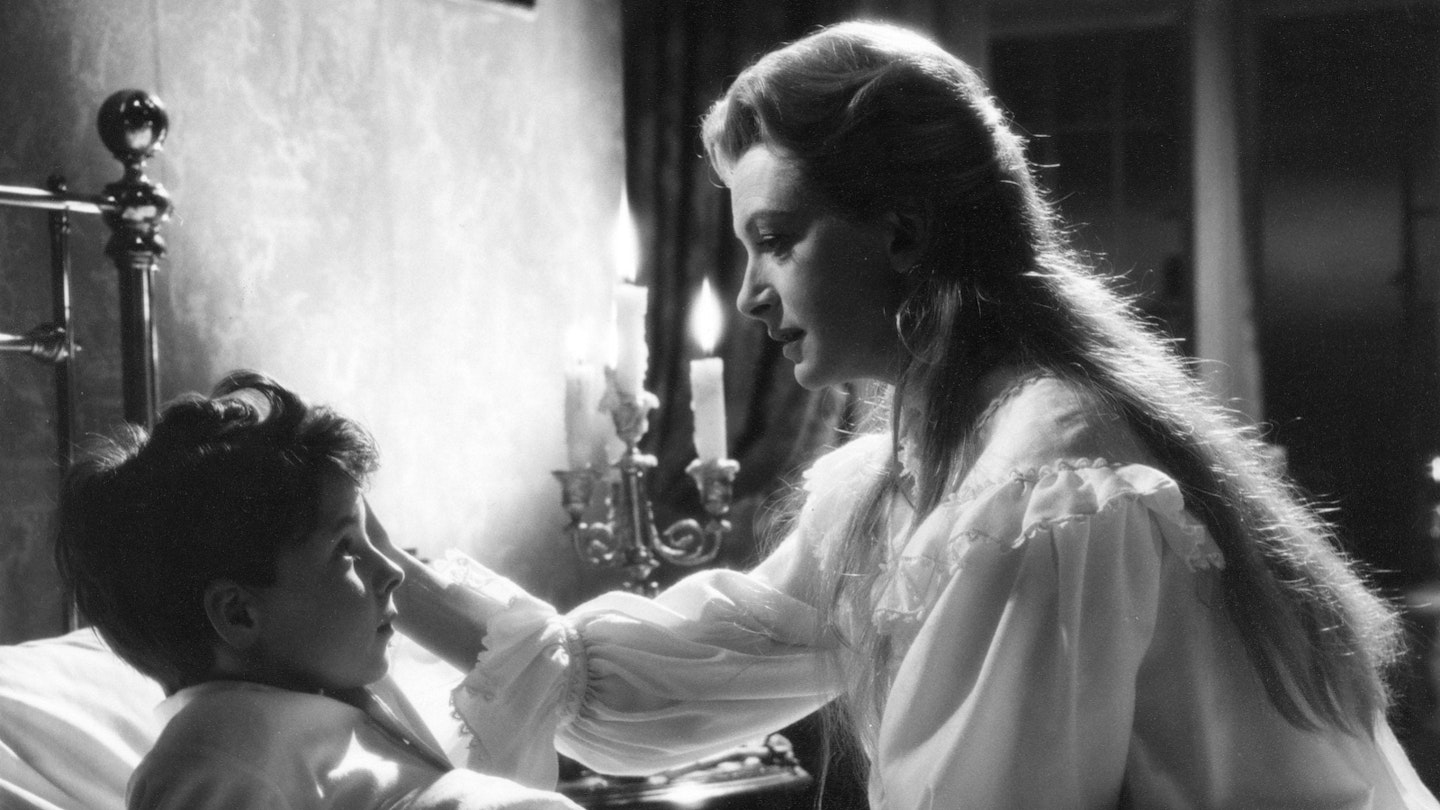
The title's different, but The Innocents is otherwise an elegant and extremely faithful adaptation of Henry James' perennial classic chiller The Turn Of The Screw. A governess takes charge of two creepy children who appear to be being haunted by previous incumbents of their rackety estate. But the film preserves James' crucial ambiguity: are the children really in danger from ghosts, or from a sort of supernatural Munchausen-by-proxy stemming from their hysterical guardian? The answer's up to you.
25) The Descent (2005)
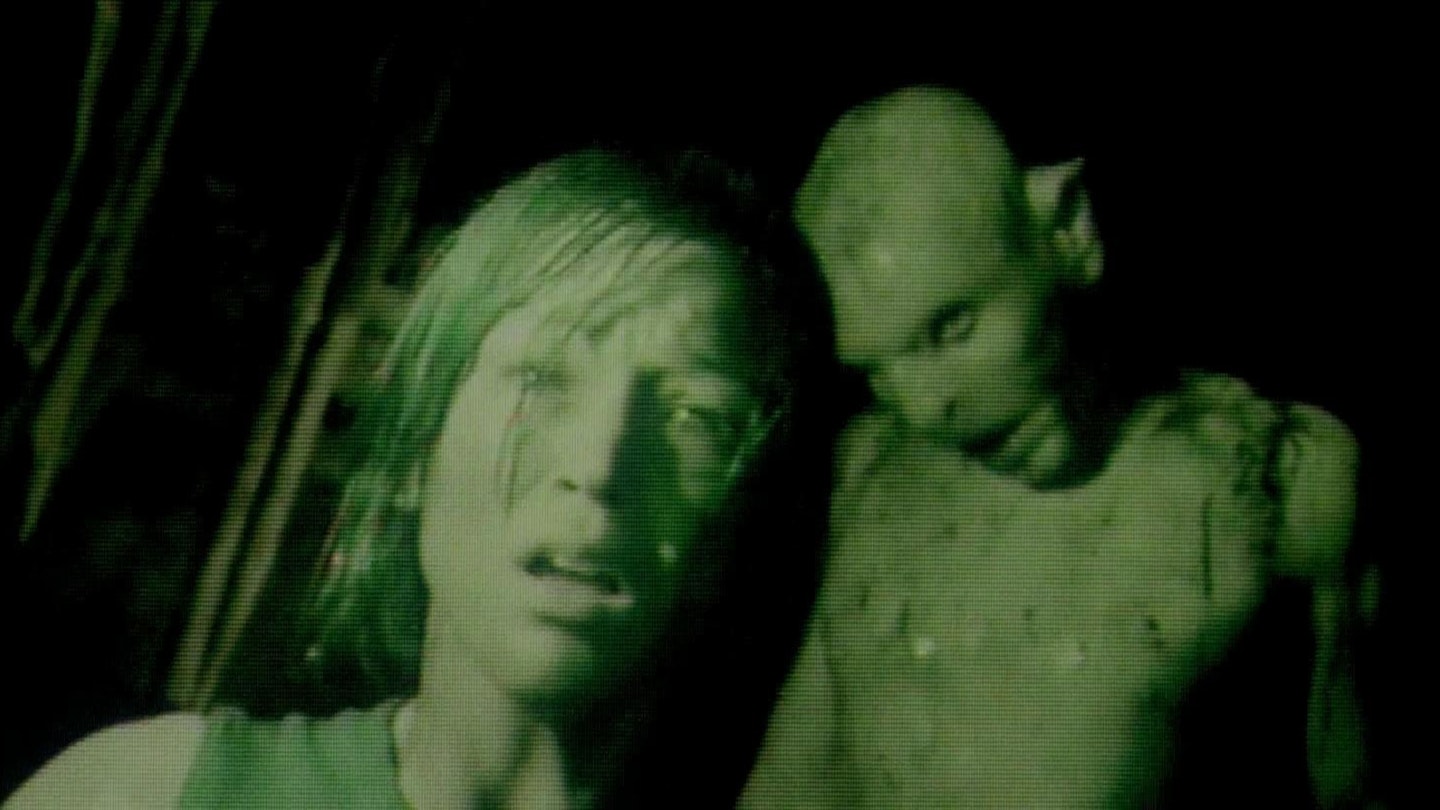
Somewhat like Aliens, Neil Marshall's masterstroke here is in keeping the monsters off screen for a good hour. And after the almost unendurable cave-bound claustrophobia of the first half, it's almost a relief when they finally show up to provide a more solid, familiar focus for the audience's fear. Before that comes an unbearably tense series of character clashes and potholing injuries: a pressure-cooker building to a head of steam that brutally climaxes with a shocking accident and the full reveal of... well, we won't spoil it for those who haven't explored the depths themselves. From then on it's intense action all the way to a devastating conclusion. American audiences got an upbeat ending from which the sequel continues. Here in the UK, the final moments are horrifyingly bleak.
Read the Empire review here.
24) The Witch (2015)
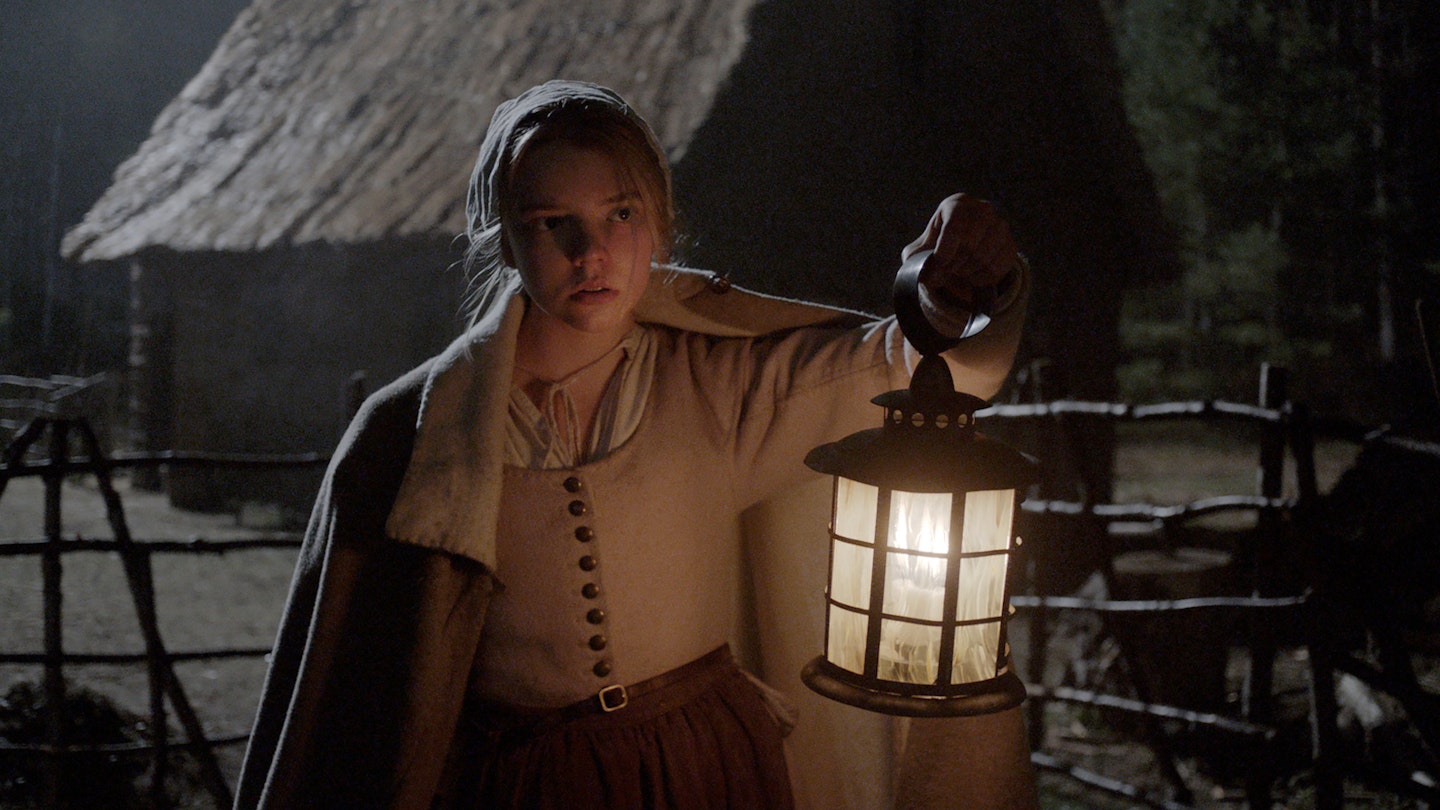
With its meticulous period setting and language, The Witch comes across as much like The Crucible as it does your average demonic possession horror. But in actual fact, there's really nothing average about The Witch at all: a devastating psychological ordeal that works as well taken at face value (the goat IS the Devil) as according to more complex theories. The cryptic events are never fully explained, leaving The Witch ambiguously unsettling.
Read the Empire review here.
23) 28 Days Later (2002)
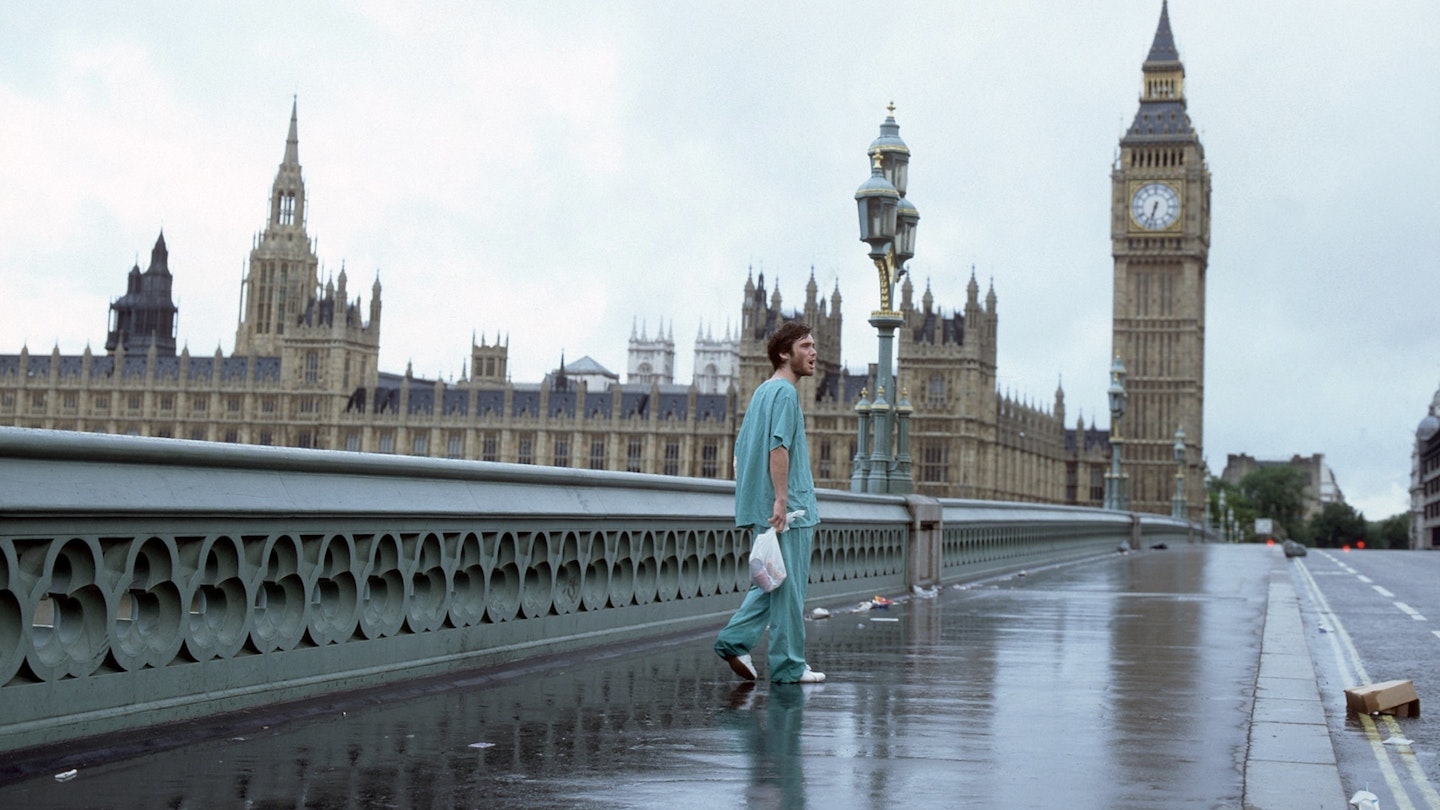
Debates raged in some corners of the horror community about whether the fast-moving "infected" were zombies or not. Seriously, who cares? That's not the meat of why Danny Boyle and writer Alex Garland's tale of a destroyed society is so effective. Like all great horror movies, it's about us rather than "the other", and peers into the dark heart of humanity. How far would you go faced with such a situation? You may not love the answer. And there's so much to admire visually, with a Day Of The Triffids–esque emptied London, shot guerrilla-style in early mornings.
Read the Empire review here.
22) Night Of The Living Dead (1968)
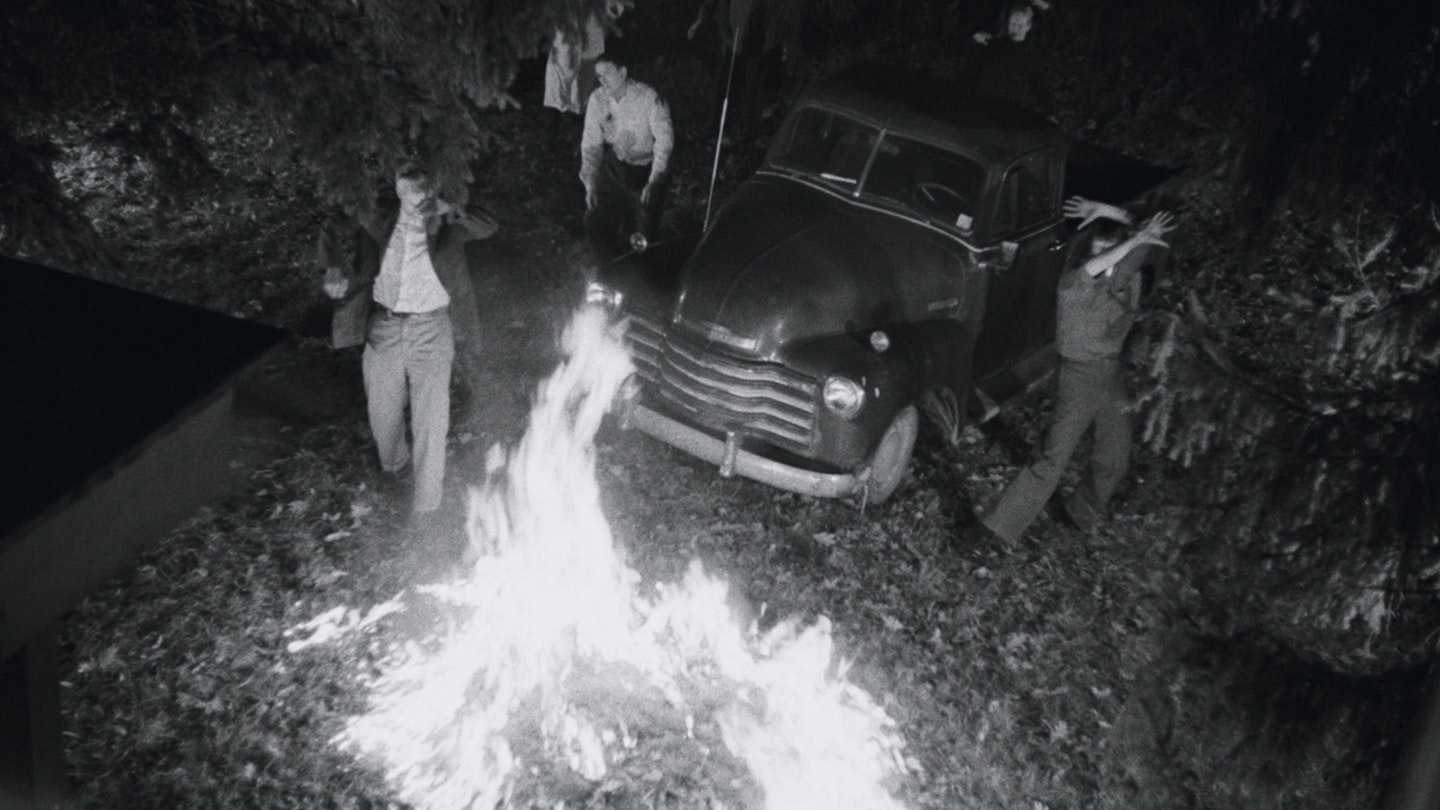
Whenever you watch an episode of The Walking Dead or read a Max Brooks novel or even fiddle with your smartphone on Plants vs Zombies, you have George A. Romero to thank. Nobody else has contributed more to the modern conception of zombies than the bearded genius from the Bronx, and no film has kickstarted a subgenre so enduring or fruitful. Night Of The Living Dead is scary, sure (its violence caught audiences by surprise at the time) but it's also surprisingly witty: a socially cognisant satire from a politically loaded time. Little wonder that Quentin Tarantino once claimed the "A" in George A. Romero stood for "A Fucking Genius".
Read the Empire review here.
21) Get Out (2017)
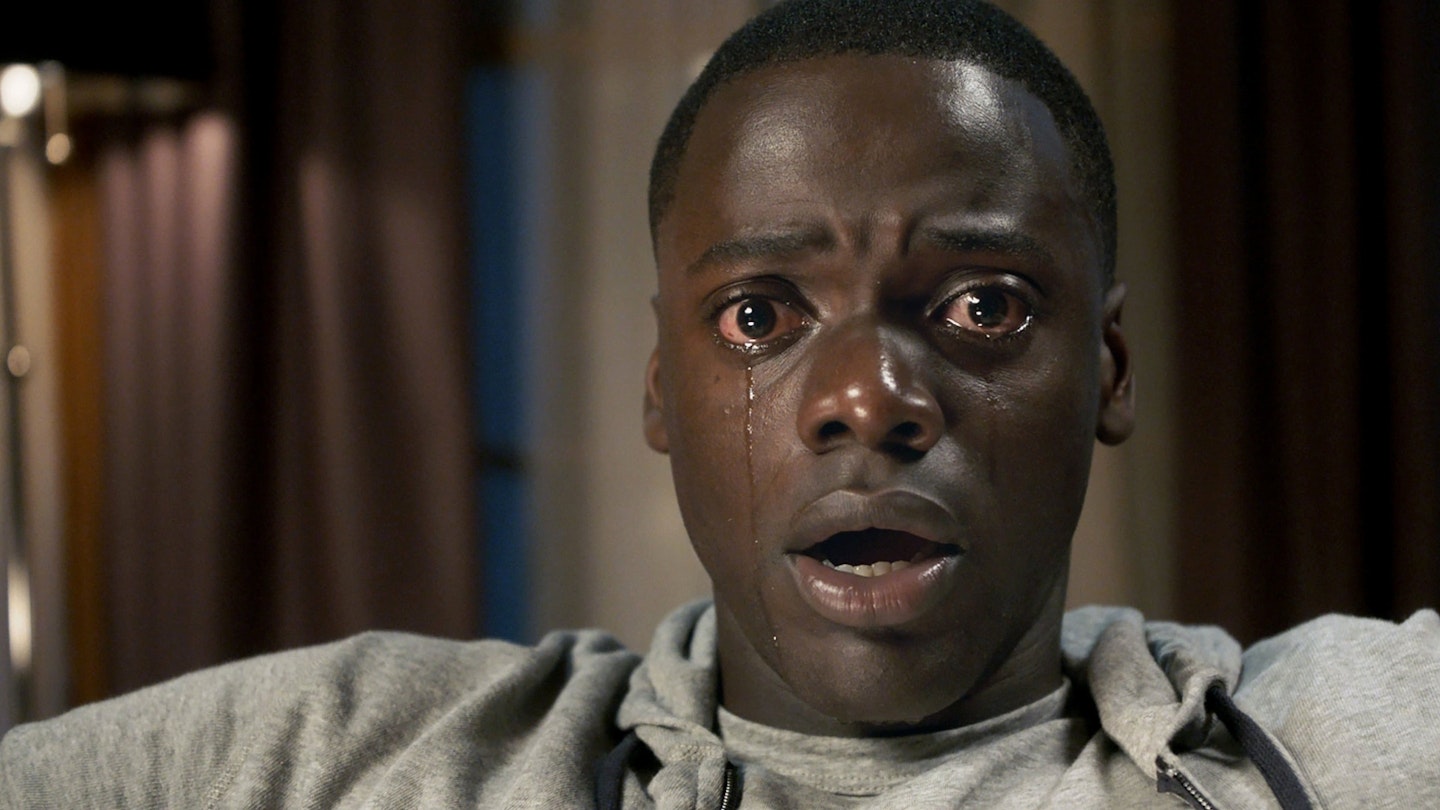
Few horror films have had as instant and seismic an impact in recent years as Get Out. Jordan Peele's hugely entertaining and incredibly potent satire portrays societal horrors in clear-sighted, direct style through the story of Chris – a young Black American who prepares to meet his white middle-class girlfriend's parents over a nightmarish weekend. It's a concept that Peele plays out perfectly, needling the awkward areas of social interaction and (barely) amplifying the Black experience in the contemporary US, with fantastic performances from Daniel Kaluuya, Bradley Whitford, Catherine Keener and Alison Williams. So sharp and smartly-made, it even caught the Oscars' attention, winning Best Screenplay for Peele and earning nods in Best Picture, Director, and Leading Actor.
Read the Empire review here.
20) Suspiria (1977)
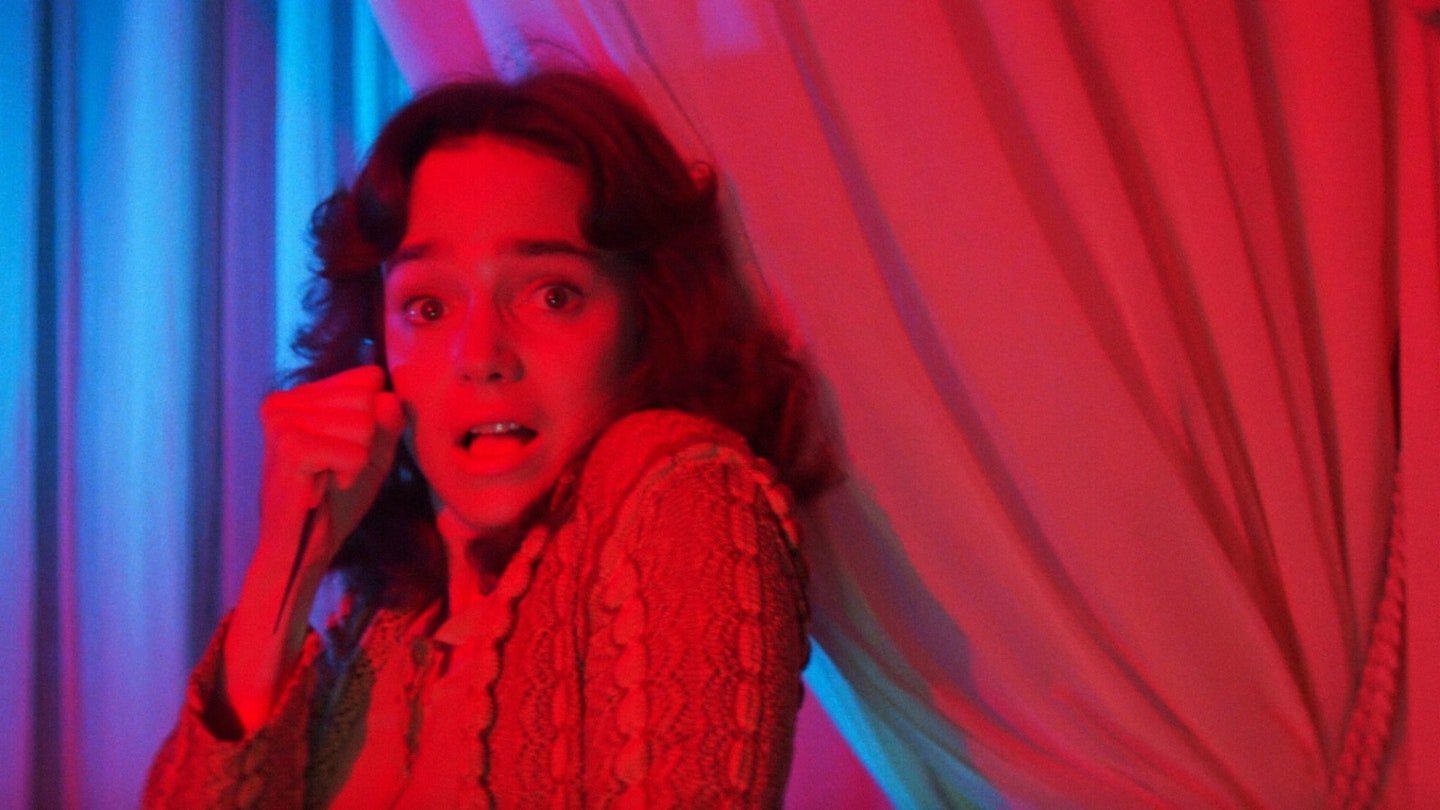
Nobody makes horror quite like Dario Argento. With Suspiria, the Italian genio set the Video Nasties era of censorship and moral panic ablaze, and set the template for his "Three Mothers" trilogy. All his hallmarks are there: dark supernatural elements at play; bravura camera acrobatics; bloody, extreme violence; themes of obsession and sexual aberration; and a vibrant, hyperreal technicolour palette. Think The Umbrellas Of Cherbourg, but with witch-demons instead of umbrellas. Luca Guadagnino’s remake – with its Thom Yorke soundtrack and multi-roling Tilda Swinton – is well worth a look, too.
Read the Empire review here.
19) The Texas Chain Saw Massacre (1974)
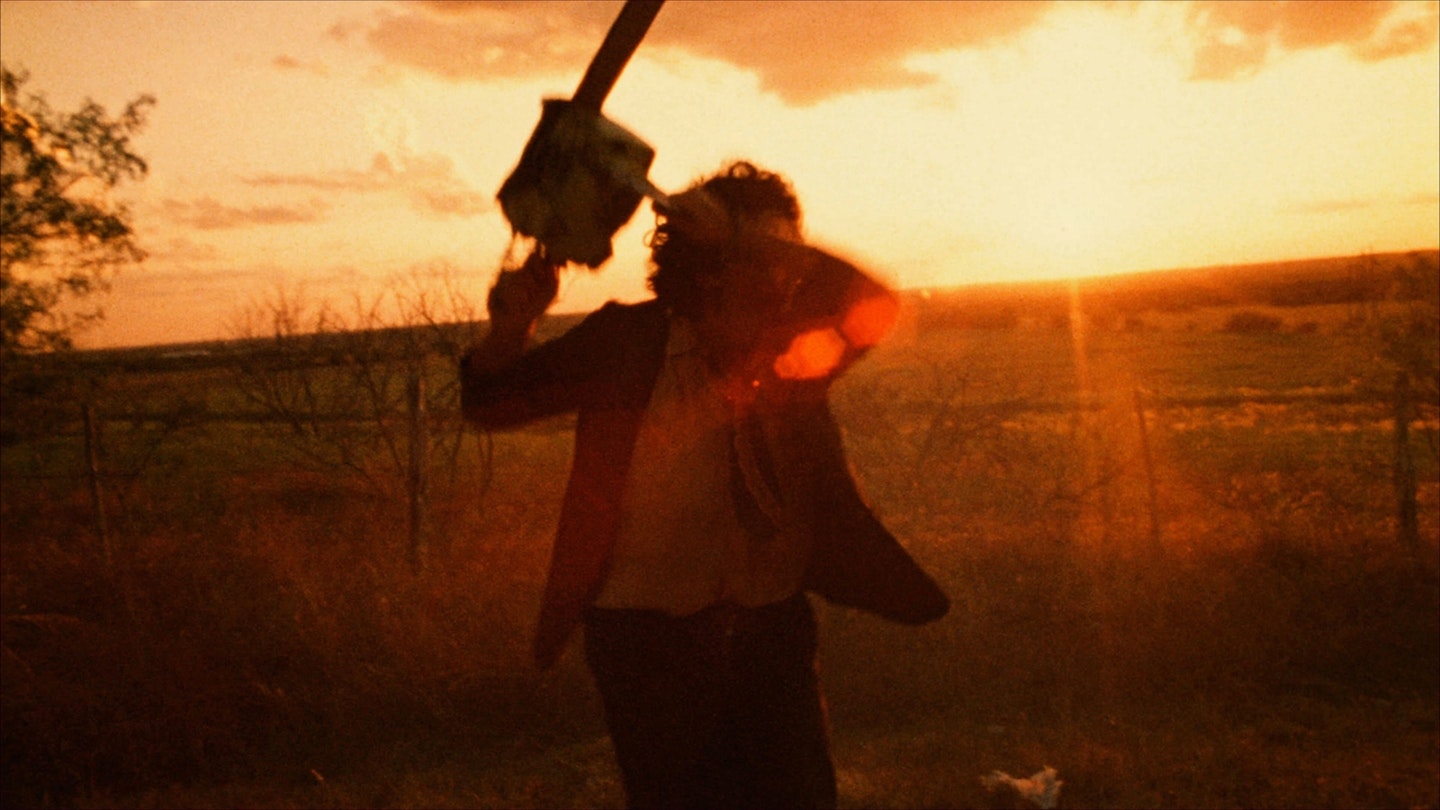
Five years after Scooby-Doo first aired, Tobe Hooper similarly put some teenagers in a blue van to endure a scary mystery. Their experience was rather different. Maybe they should've brought a dog, although it's doubtful it would have helped them. Actually quite light on gore, The Texas Chain Saw Massacre nevertheless remains a uniquely gnarly, punishing experience, from its grotesque production design to its family of cannibal freaks and its stand-out villain Leatherface. Some have suggested an intriguing Vietnam-era subtext about America eating its young, but the film functions perfectly well without it on a pure, primal level. Burns' screams ring in your ears long after the exhausting last act is over, and the final shot of Leatherface dancing with his saw is an indelible image.
Read the Empire review here.
18) The Omen (1976)
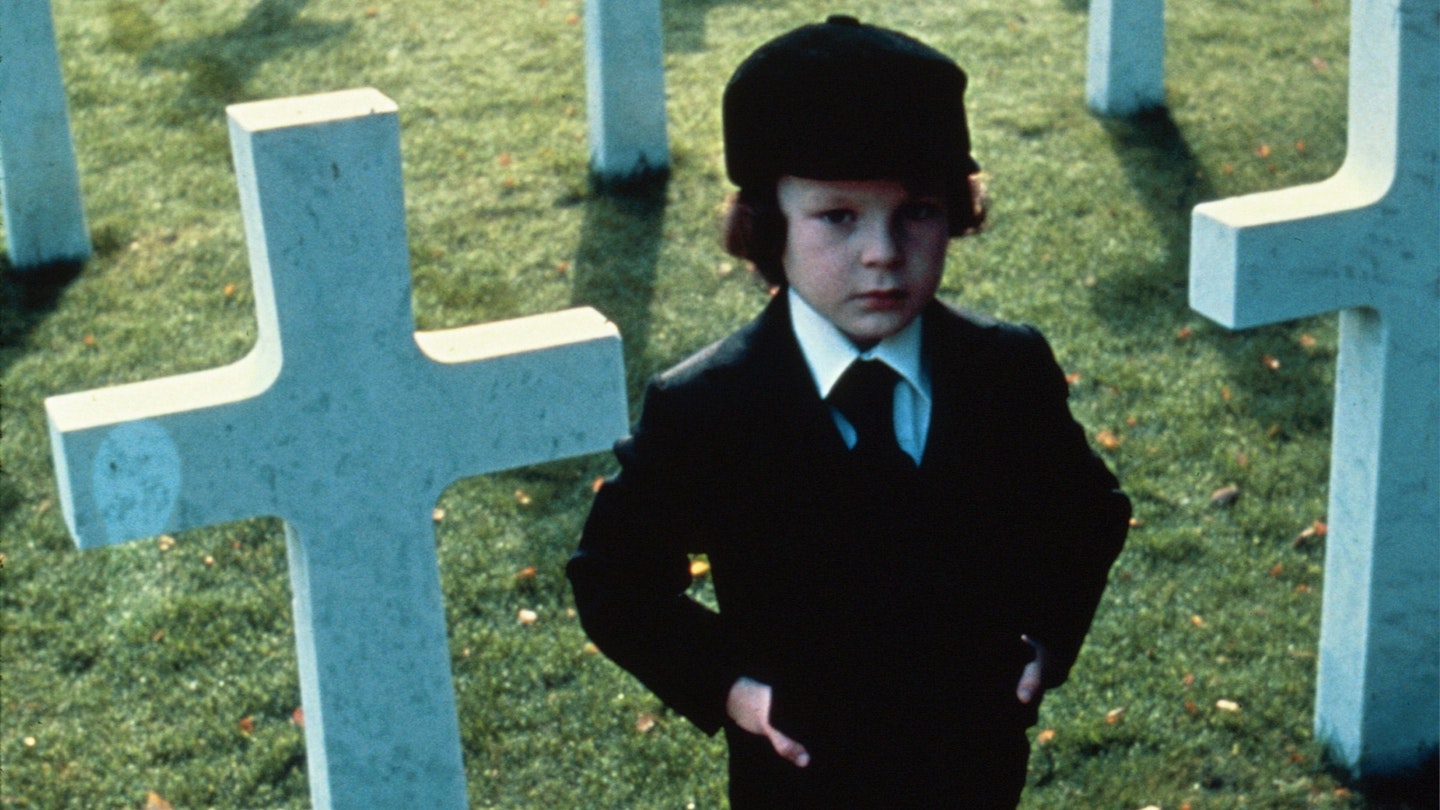
Boys, eh? Muddy-kneed, conker-smashing little blighters... all running around and falling over and, in Richard Donner's timeless chiller, turning out to be the Antichrist. The unwitting adoption of devil child Damien (Harvey Spencer Stephens) has horrifying consequences for parents Gregory Peck and Lee Remick in one of the bleakest collisions of faith, religion and superstition in the genre. It's not held in quite the same critical esteem as The Exorcist or Rosemary's Baby these days, but make no mistake, The Omen is still a powerful potion.
Read the Empire review here.
17) Psycho (1960)
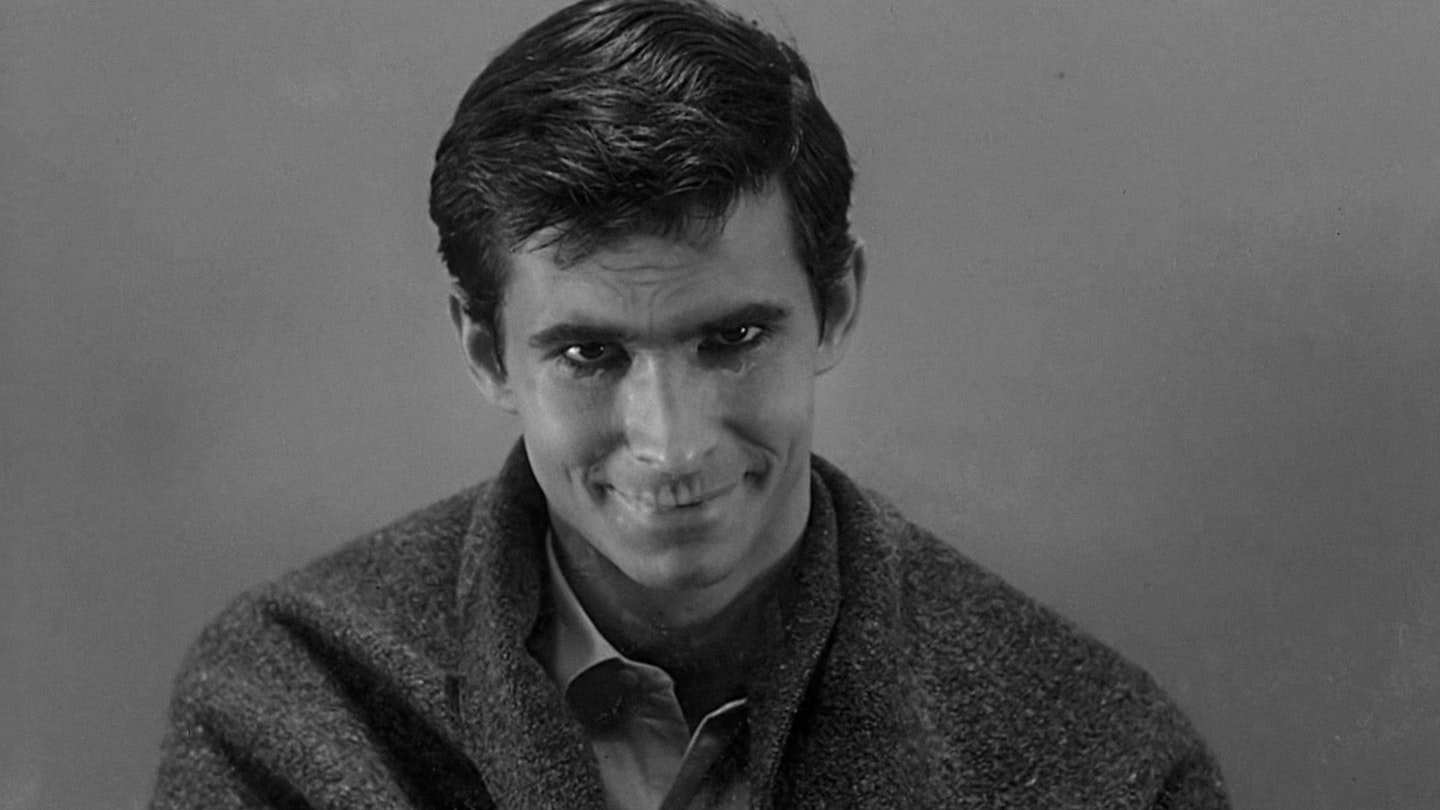
Imagine a trip to see Psycho in 1960. Its deliberately oblique marketing, fronted by Hitchcock himself, would have prepared you for a motel to feature prominently but not much else. The opening 20-odd minutes must have seemed like a pretty standard noir set-up, with Janet Leigh eloping with a bunch of money and the tantalising possibility of a new life that lasts precisely as long as her next trip to the shower. Then came the full-bore shock of that brutal knifing, each stab driven home by Bernard Herrmann's jarring score, unexpected and almost entirely without precedent. Audiences must have wondered if it wasn't Hitch himself who, in the nicest possible way, was the real psycho here. (Also, don’t sleep on Psycho II, one of the most unexpected, underrated gems in sequel history!)
Read the Empire review here.
16) Ring (1998)
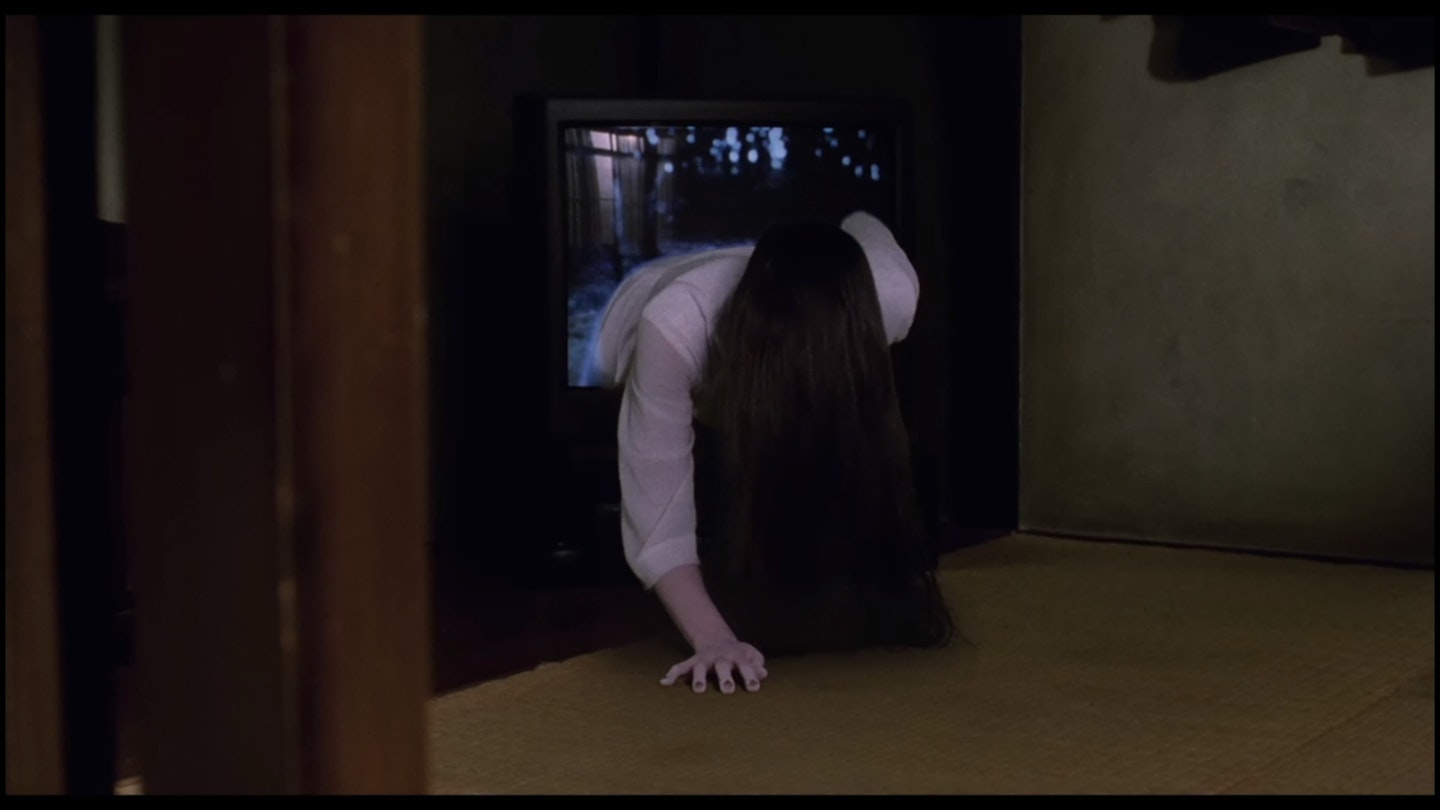
Not the first adaptation of Kōji Suzuki's novel, but the one that brought the terrifying Sadako Yamamura to international attention. Suzuki's sci-fi tinged material is jettisoned in favour of more horrifying ambiguity, and Nakata's film is an intriguing collision of Japanese folk horror (the well-dwelling, black-haired, chalk-skinned Sadako is clearly descended from the ghouls of Japanese tradition) and more modern concerns about viral media and moral panic. It's a slow burn, but worth the unsettling journey to its most famous set piece.
15) The Blair Witch Project (1999)
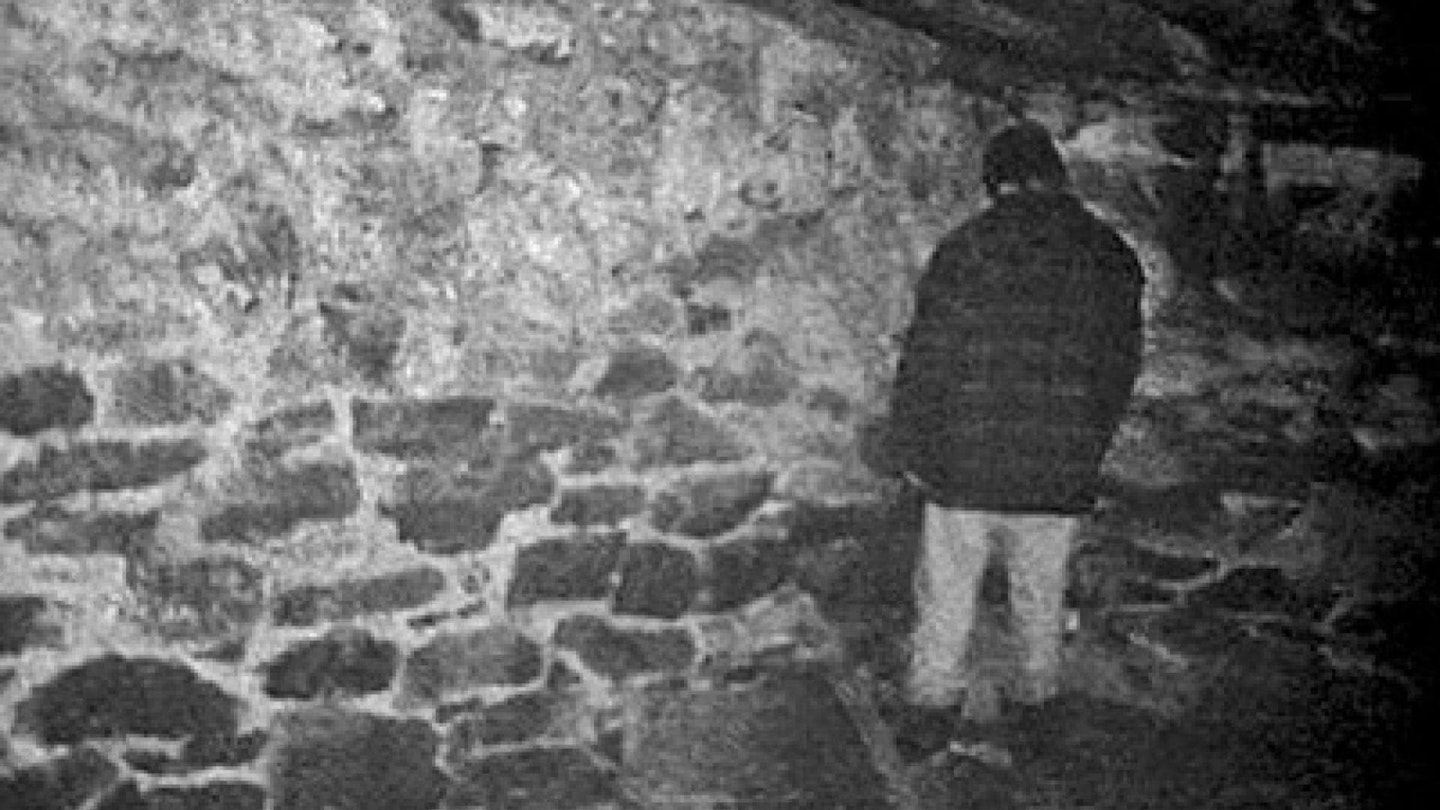
It wasn't the springboard its director and crew might have hoped after banking $250 million from their nano-budget horror, but the legacy of The Blair Witch Project continues apace. It's instructive to see how little Adam Wingard's surprise sequel deviated from the set-up and formula of the original (bunch of kids head into the Black Hills, record the results on the shakiest of shakycams) 17 years later. At the time, it sparked a revolution in the genre. Since then have come dozens of imitators, although even the best of them struggle to replicate the original's disorientating chills. Twigs and bits of foliage have never been so scary, and that ending? Still one of the movie scenes that scared us the most.
Read the Empire review here.
14) Dawn Of The Dead (1978)
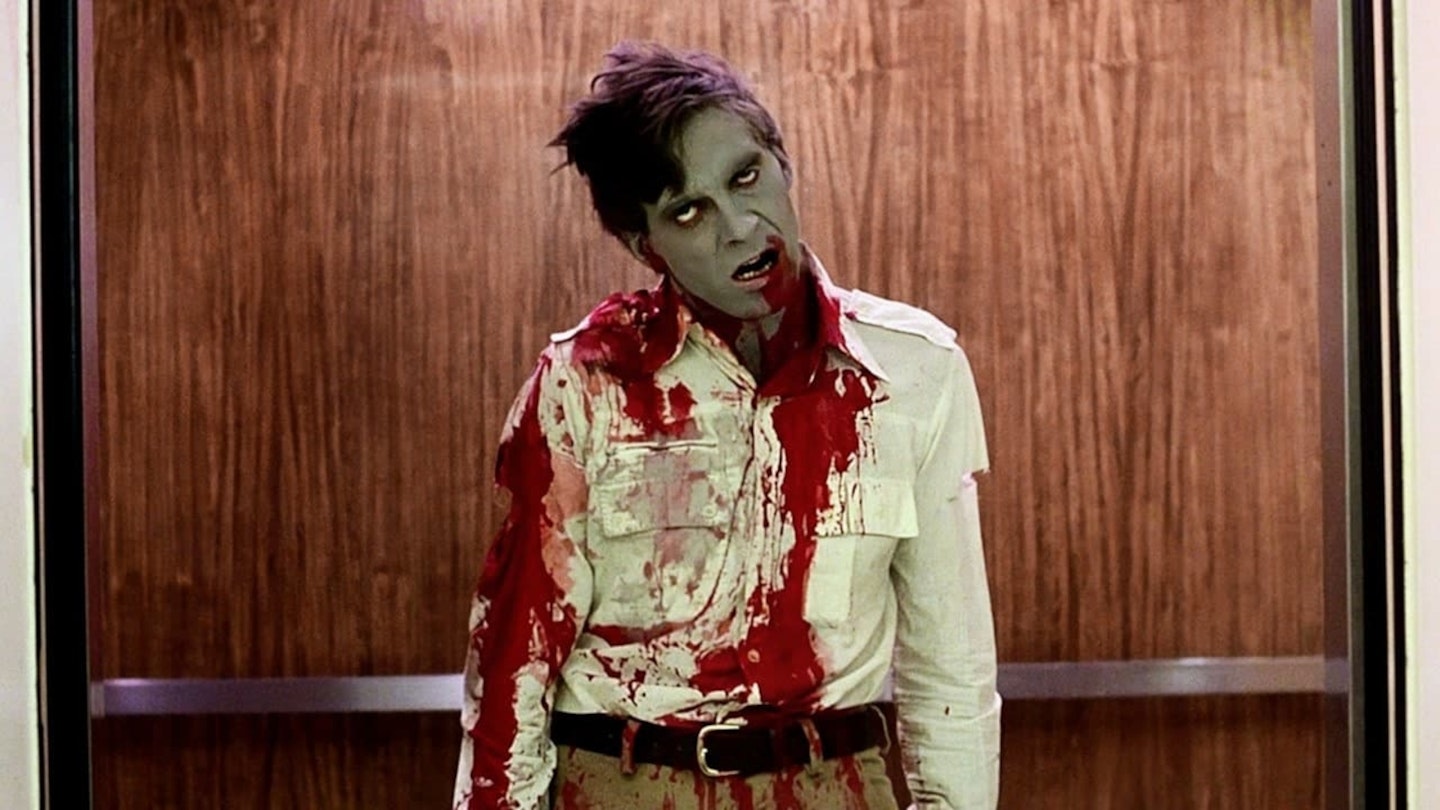
Building exponentially on the bedrock of 1968's Night Of The Living Dead, Dawn Of The Dead sees Romero firing on all cylinders a decade later. Largely confined to an abandoned (well, almost) shopping mall as the undead pandemic rages outside, this is as much a tense, base-under-siege action thriller as it is a horror movie. But there are creepy scares and gonzo gore by the bucketful, while Romero takes sly philosophical swipes at class and racial politics and mindless consumerism. A Day, a Land and a Diary would follow, but never quite reclaim these horror heights.
Read the Empire review here.
13) Carrie (1976)
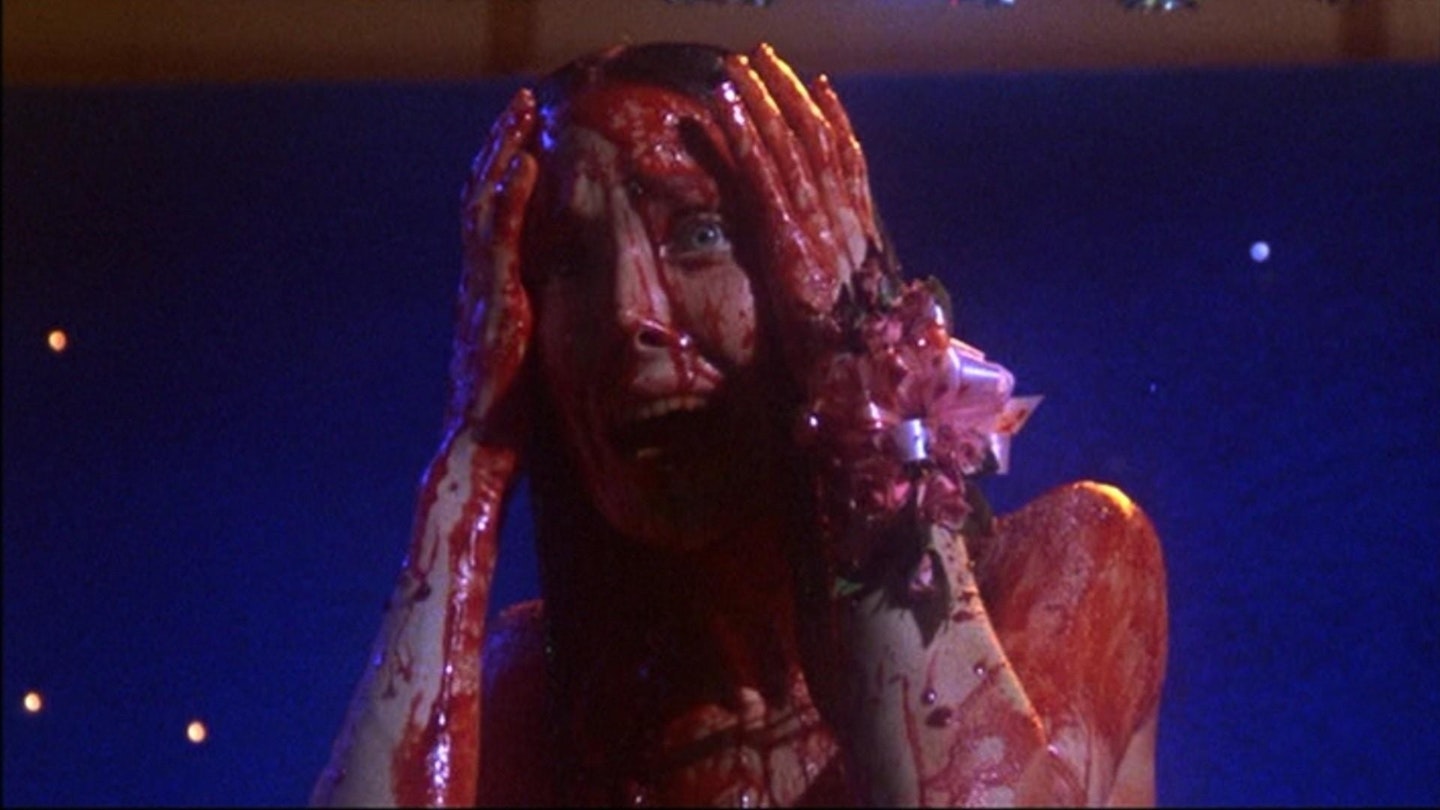
Carrie was among the first films to utilise that most terrifying supernatural force: puberty. Stephen King's novel recognised the trials of adolescence as ripe ground for horror, and found a worthy suitor for his first cinematic adaptation in director Brian De Palma, who brings the tale to life with sadistic relish and intelligent, daring camerawork. Sissy Spacek, meanwhile, imbues Carrie with childlike innocence and genuine pathos, blotted only by mild bouts of, erm, telekinetic murder. It's a testament to her range that, come that prom finale, you find yourself feeling simultaneously sympathetic and scared shitless.
Read the Empire review here.
12) An American Werewolf In London (1981)
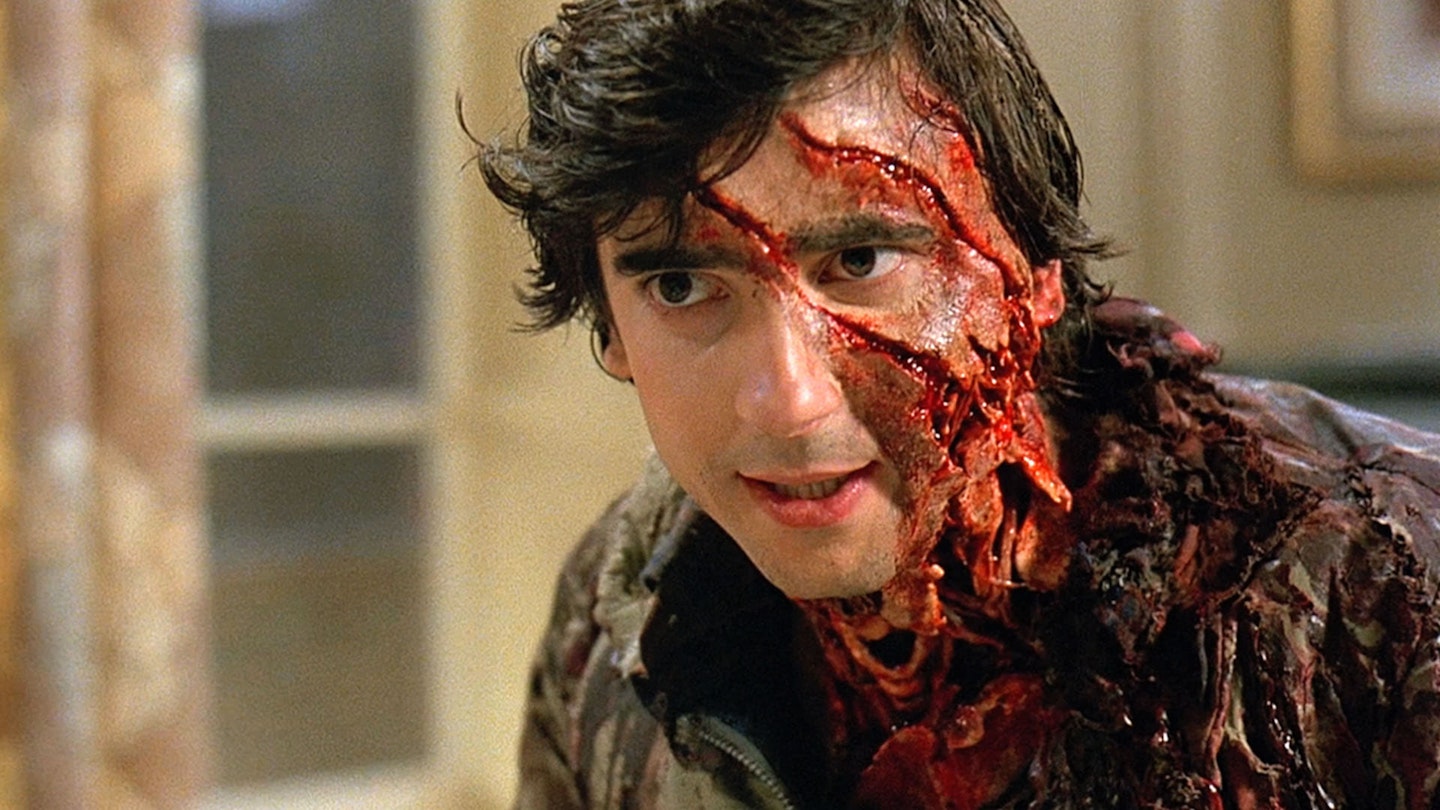
A comedy-horror that skimps on neither, American Werewolf manages to be properly scary, blackly funny, and, in the relationship between lycanthrope David Naughton and nurse Jenny Agutter, genuinely moving. It's a deft juggling act, confidently performed by director John Landis who, while he remains immensely likeable, was arguably never this good again. An American director in England, his sense of the country never descends into twee American En-ger-land clichés, and even the stock lines and characters – "Stay off the moors!" – are performed in such a way that they never grate. It's a loving homage to bygone scares that nevertheless feels entirely modern almost 40 years later.
Read the Empire review here.
11) Rosemary's Baby (1968)
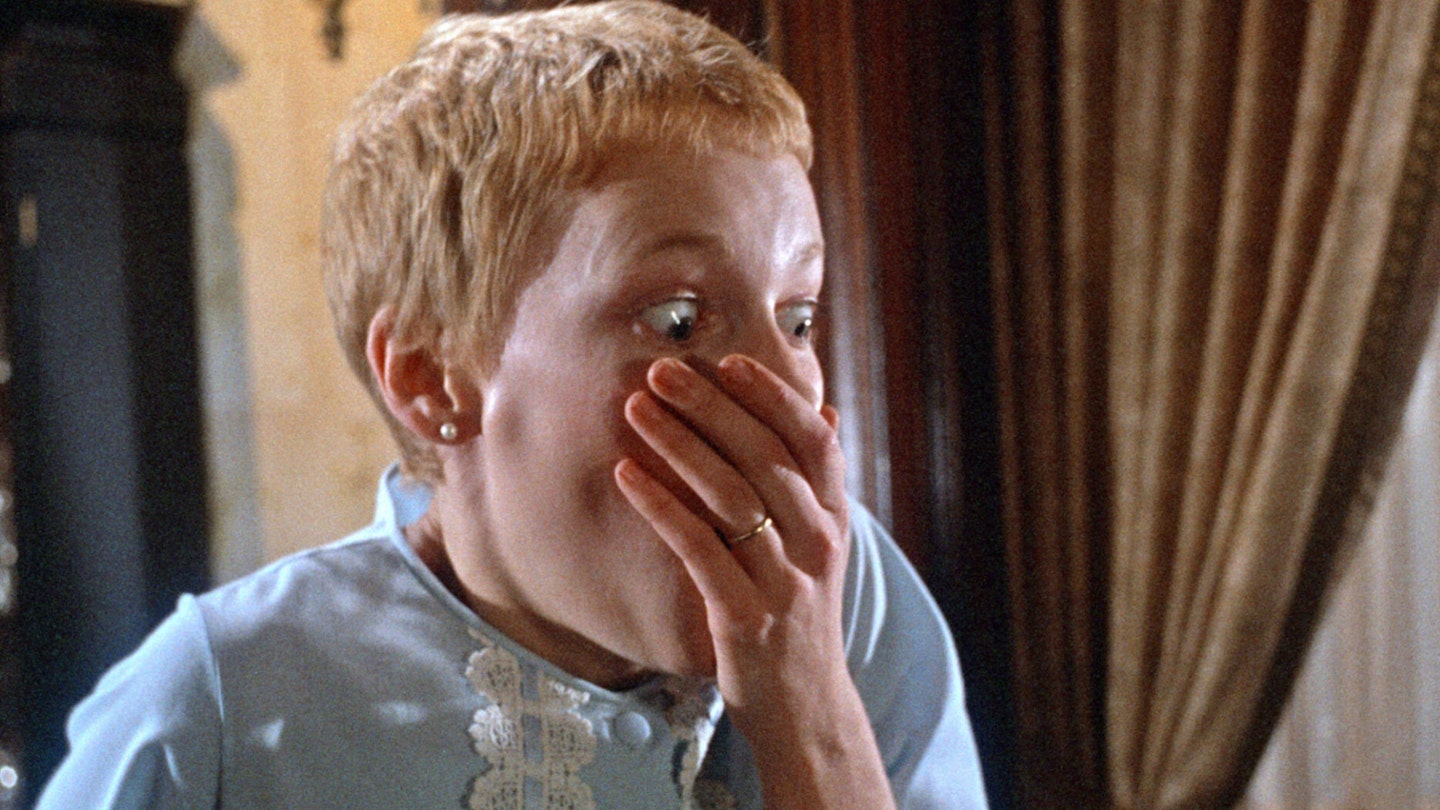
Like a twisted cross between The Exorcist and What To Expect When You're Expecting, this occult classic is no movie to watch when you're considering settling down to family life or planning a foray into the property market. Neighbours, quite literally, are a hellish proposition for Mia Farrow and John Cassavetes' newly-weds as they settle into their new Manhattan brownstone. Outside their four walls, dark forces swirl – and we're not talking about the velour furniture. The film's commanding tight interior scenes and mood of slowly-building paranoia make what follows claustrophobic and endlessly creepy.
Read the Empire review here.
10) The Wicker Man (1973)
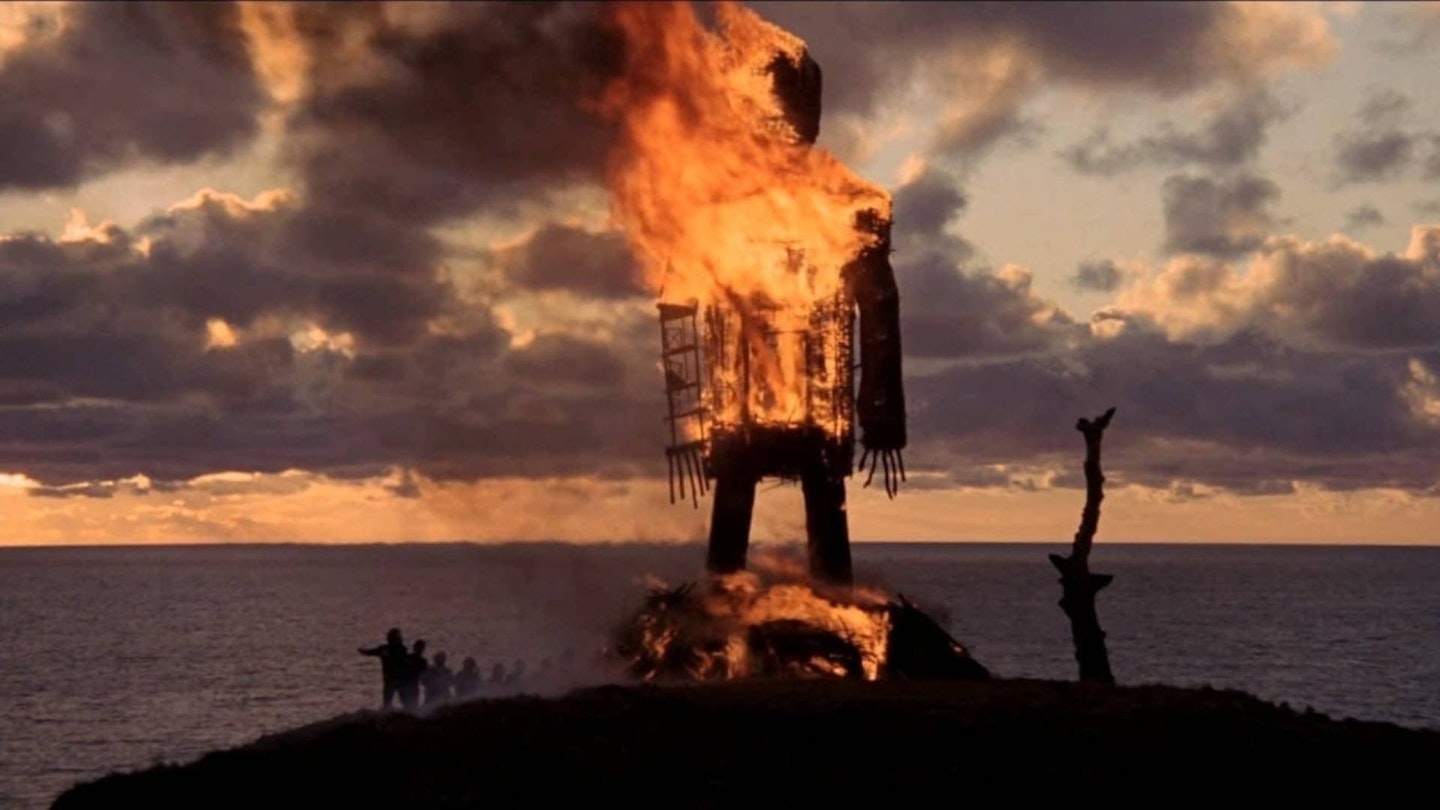
The Wicker Man shouldn't really work. An outsider's view of a mythical Scotland, written and directed by Englishmen and scored by an American, replete with songs to the extent that it's practically a musical, it's a minefield of elements that could all have gone horribly wrong. And yet, it's all so right: that weirdness is a crucial part of the unsettling whole; Edward Woodward's hapless investigations leading inexorably to that final, devastating reveal. There's plenty of humour, but it never feels like Woodward isn't in real, frightening trouble; the climax is as inevitable as it's horrifying. It's easy to laugh at the remake, but even Hardy himself failed to recapture the dark magic with his belated Wicker Tree. The Wicker Man is unrepeatable.
Read the Empire review here.
9) A Nightmare On Elm Street (1984)
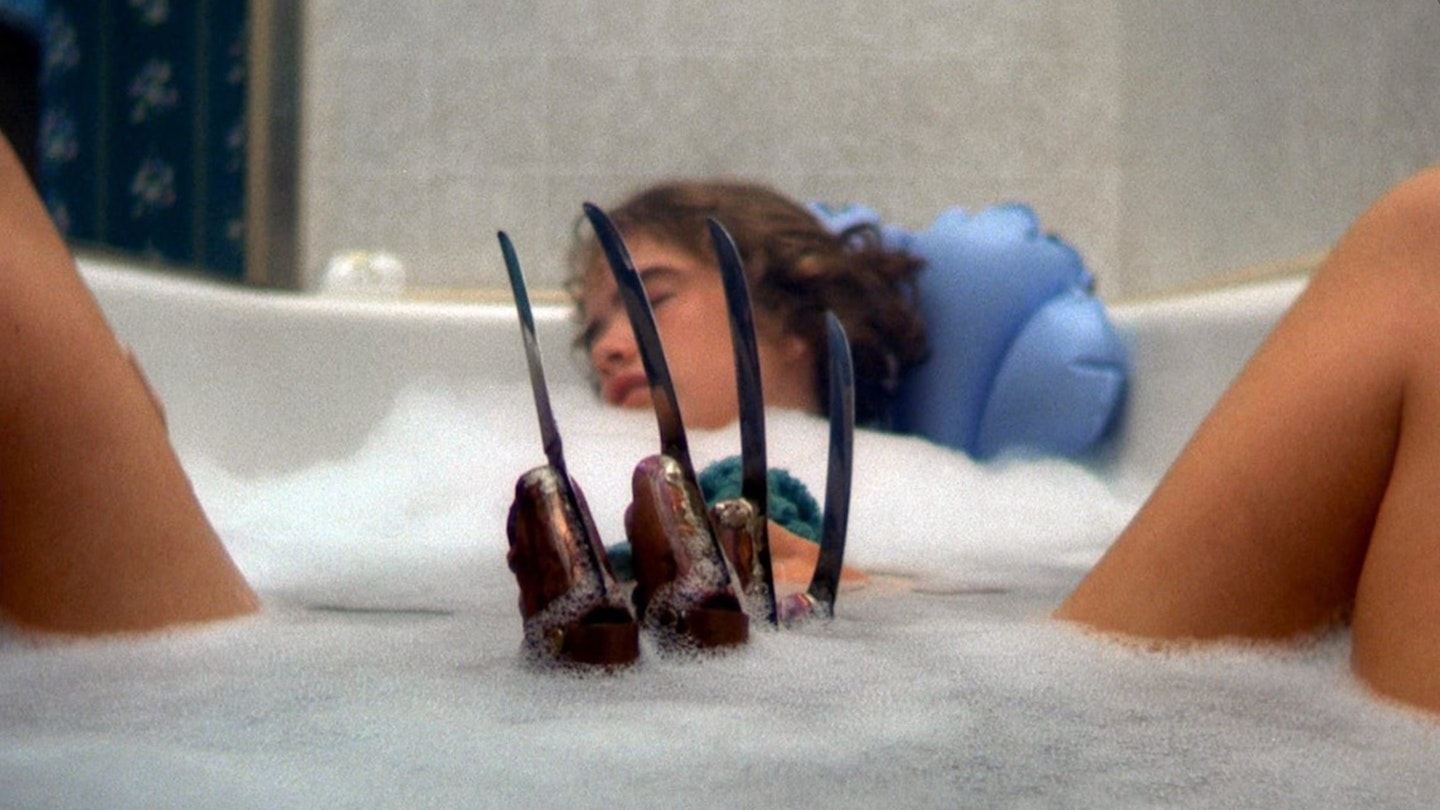
There have been, at time of writing, nine film entries in the Nightmare On Elm Street series, including a reboot, a crossover, and a sequel rather prematurely titled The Final Nightmare (which it was not, obviously). None quite compare to Wes Craven's remarkable original. Taut, witty, and nightmarish (clue's in the title), Elm Street stands out on the map during a decade hardly short of horror hits, and, in Freddy Krueger, presented the most terrifying boogeyman ever to don knitwear.
Read the Empire review here.
8) Jaws (1975)
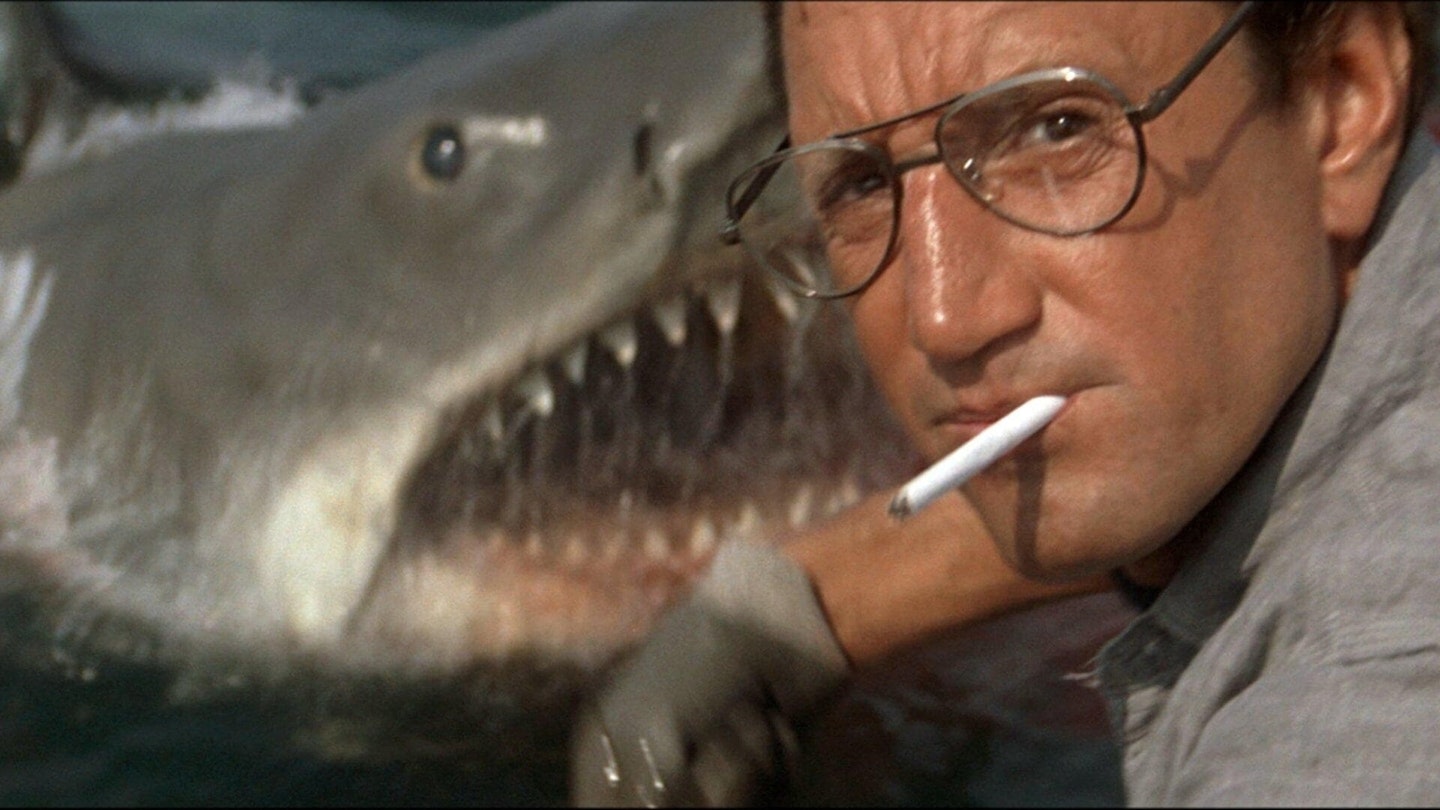
It followed shorts, Duel and The Sugarland Express, but Jaws truly announced the arrival of Steven Spielberg as a major talent. Massive production issues became the mother of real invention and needing to keep the toothy villain off screen as much as possible just ratcheted up the tension that much more. Primal fears fuel a thriller that also feels human thanks to Scheider, Shaw, Dreyfuss and the rest. Not forgetting John Williams' iconic, simple and terrifying score. Jaws sticks in the brain and makes the heart beat that much faster.
Read the Empire review here.
7) The Exorcist (1973)
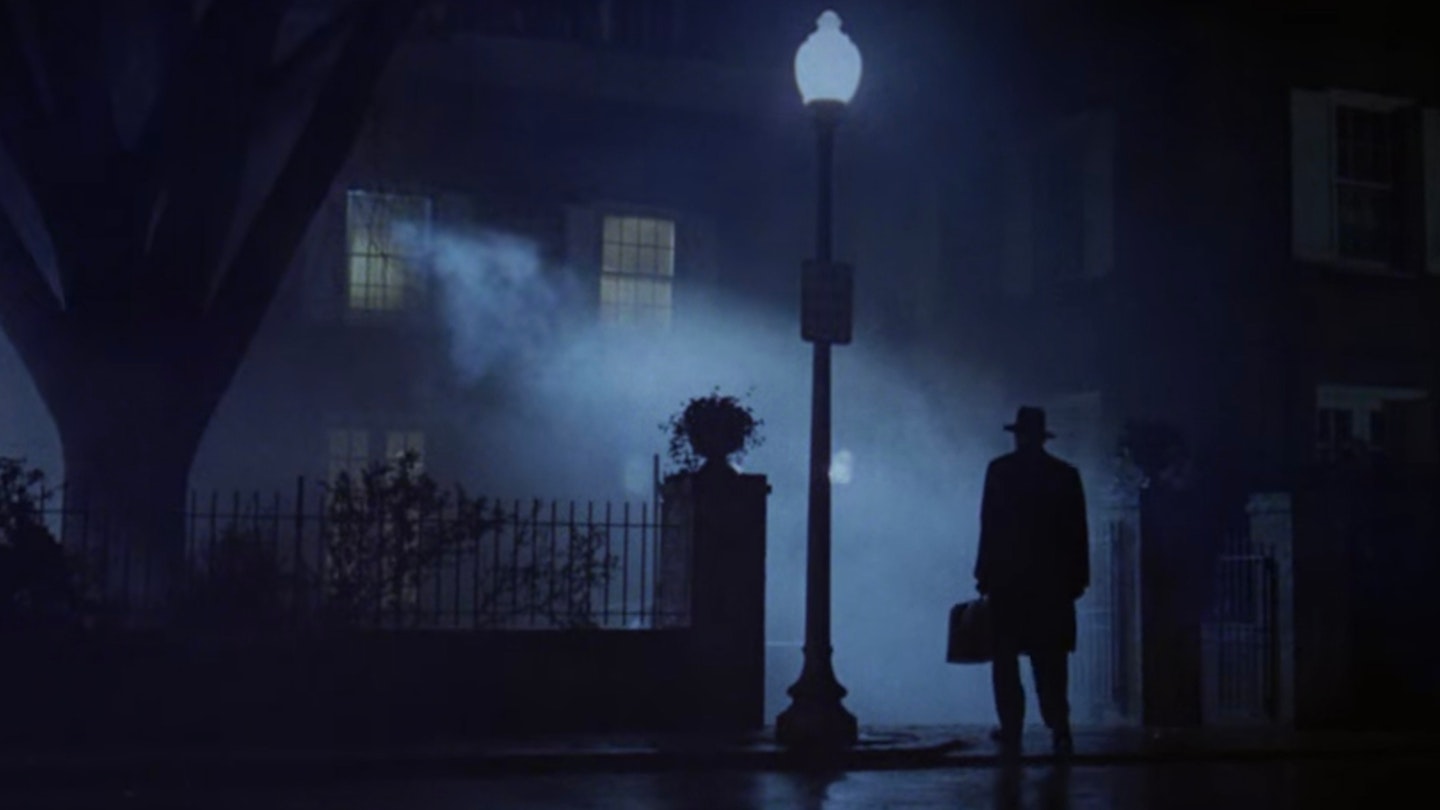
There are horror movies with infamous reputations – and then there's The Exorcist. This is a film which prompted cinema exhibitors to routinely offer 'barf bags' for queasy patrons; which had St John's Ambulance on standby at screenings to aid the regular fainters; which was accused of corrupting young minds with subliminal imagery. Amid the noise and furore, William Friedkin's achievements were almost ignored – how he deftly blended the religious and psychological with themes of unconditional faith and maternal love. And yes, it's head-spinningly frightening.
Read the Empire review here.
6) Evil Dead II (1987)
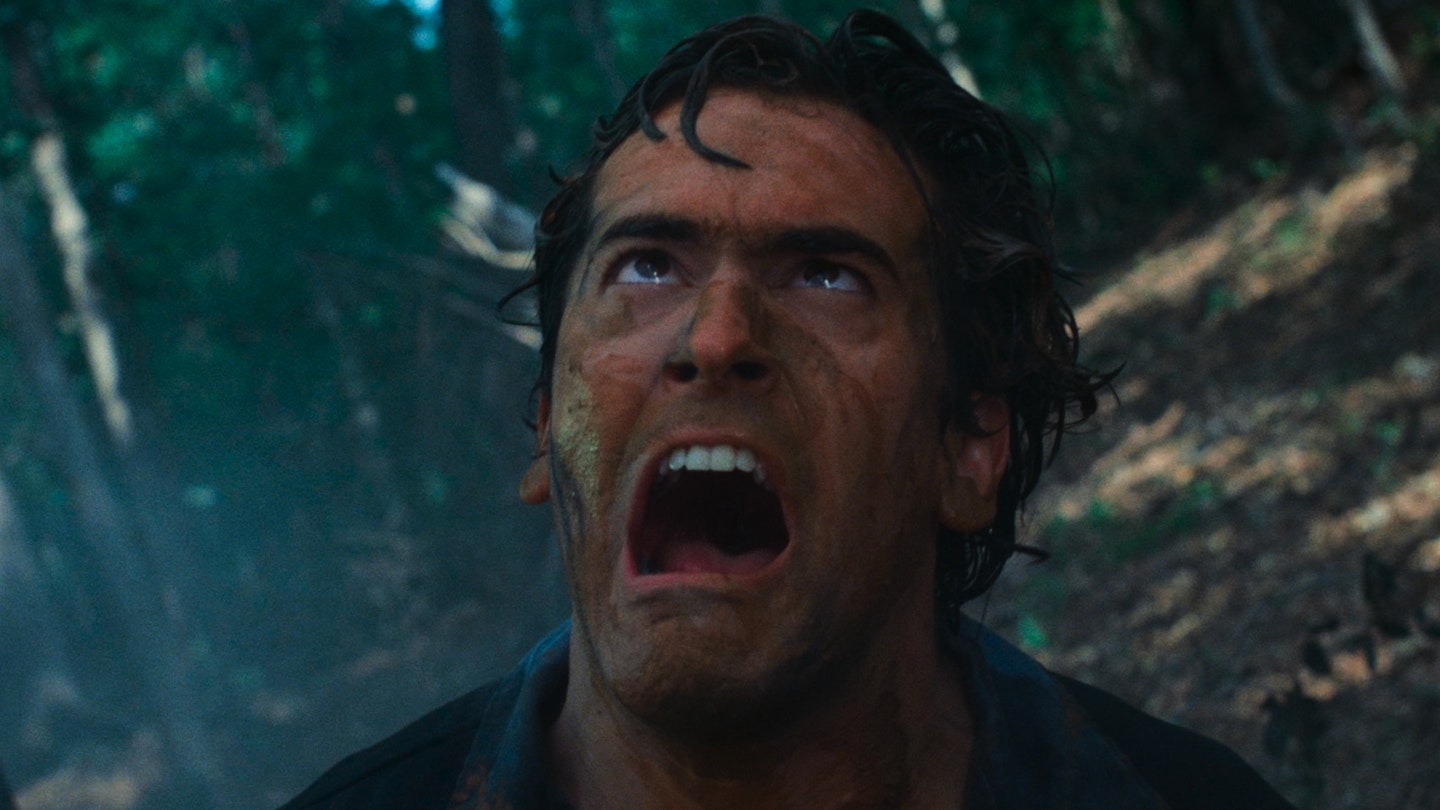
Sam Raimi's eternally groovy cult favourite Evil Dead II has an energy and a spirit that is entirely its own. After a reported rights kerfuffle from his original film, Raimi set about half-retelling the 'Book of the Dead' legend, revisiting Ash (Campbell) and his cabin in the woods – this time with a sparkier tone and more opportunity for Raimi's hyper-kinetic camera-gymnastics. The tightrope between supernatural horror, badass action and genuine spooks has never been walked so confidently, and it forever cemented Campbell as a cult hero. Good... bad... he's the guy with the chainsaw for a hand.
Read the Empire review here.
5) Scream (1996)
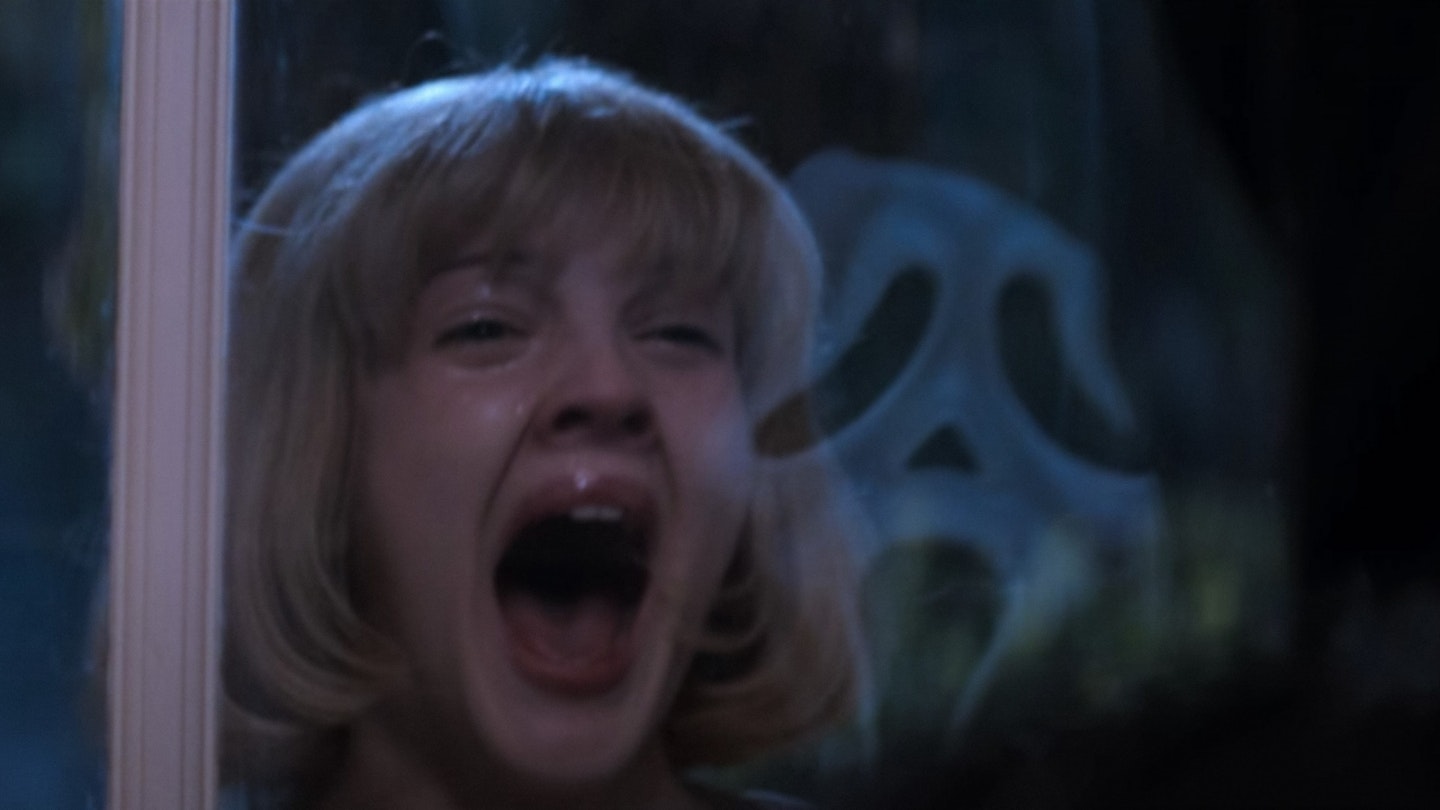
Genre deconstruction had been done before, but Kevin Williamson's canny, clever, extra-meta screenplay in the hands of Wes Craven made Scream that much more special. Taking the slasher film apart didn't stop the bloody tide of rip-offs and spoofs that followed, but it gave audiences a fresh eye with which to view them. Added to that, great work from the likes of Neve Campbell, Courtney Cox, David Arquette and scary phone voice maestro Roger L. Jackson means that it functions as an effective scarefest within its own self-referential trappings.
Read the Empire review here.
4) The Thing (1982)
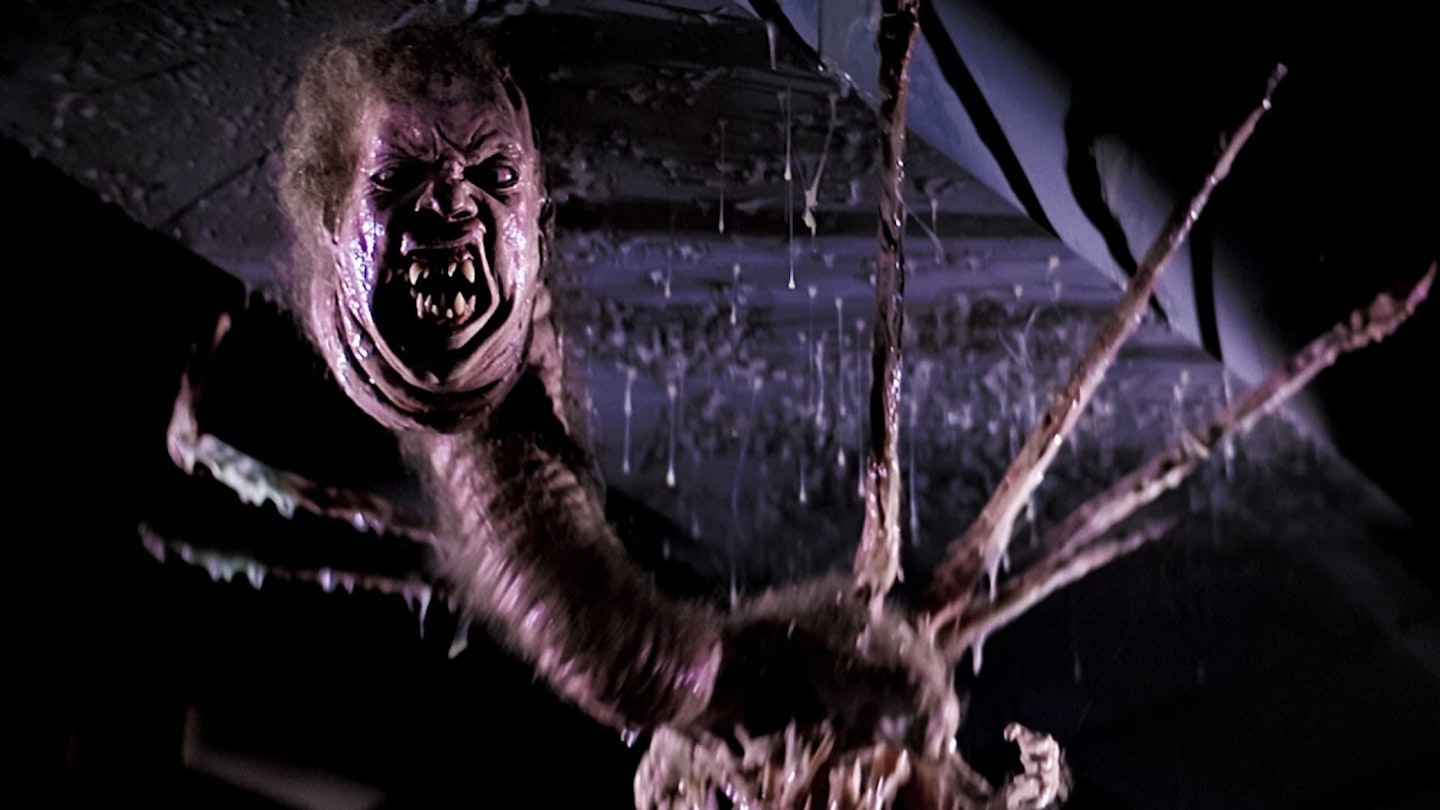
Who can you trust? And when you rely on other people to survive, what does that do to the paranoia levels? That's the key to John Carpenter's freezing chiller, set at a remote Antarctic research station. An otherworldly discovery brings blood, guts, body horror and twisty storytelling, all anchored by Kurt Russell's charisma and Rob Bottin's exemplary effects work. It'll make you itch with suspicion and recoil at the more gruesome scenes. The Thing deserved a fairer shot on release; thank goodness it has long since earned cult status.
Read the Empire review here.
3) Halloween (1978)
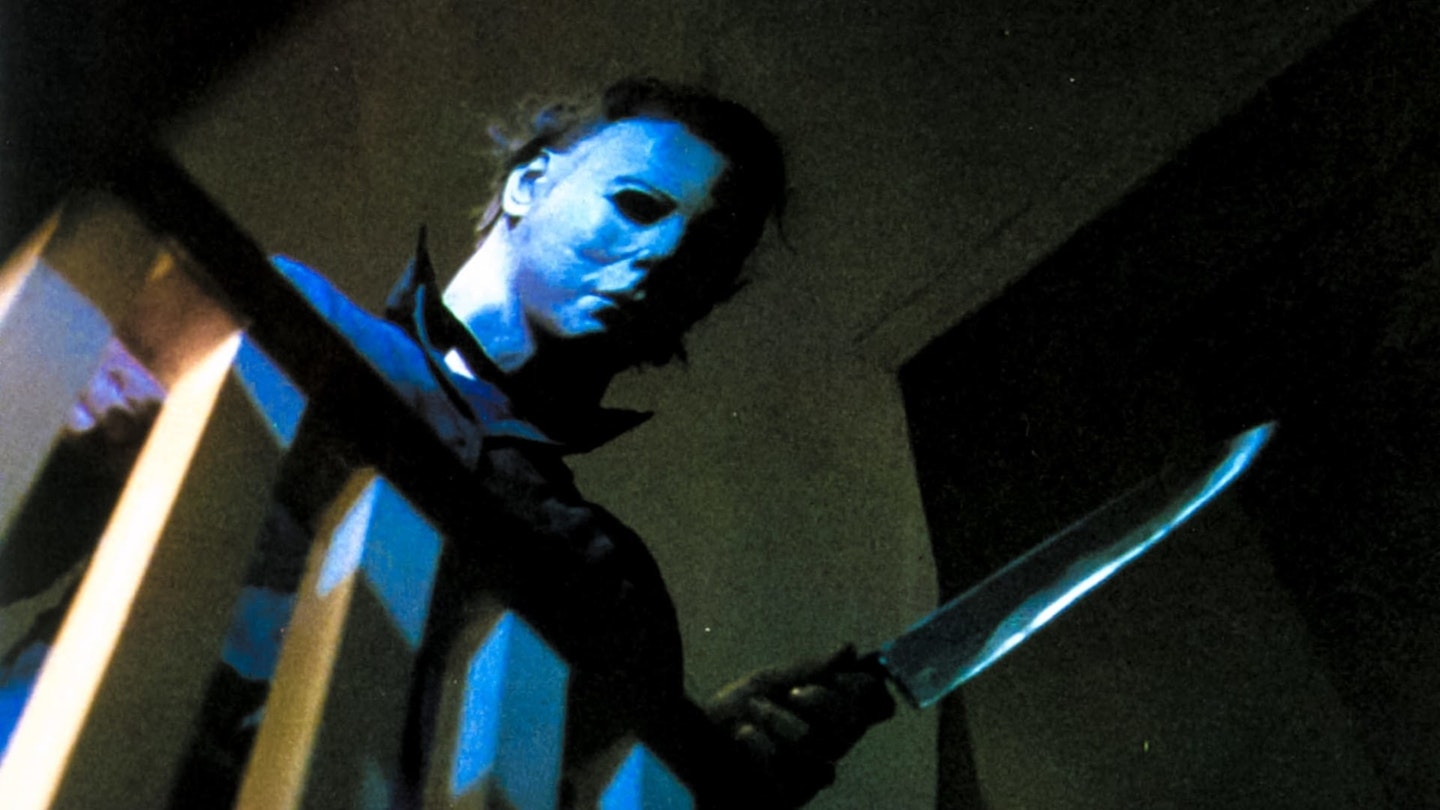
Many have tried to imitate John Carpenter's style and mood in the years since he carved his way into the horror pantheon, but few, if any, can match him. Inspired by Hitchcock, he found the scares lurking within suburbia, making them instantly relatable to the audience. And he's helped by a combination of the simple horror of Michael Myers and the naive-yet-tough charm of Jamie Lee Curtis' heroine. You can largely ignore the sequels and reboots: stick to the original to see a true master of the creepy, tension-building story at work.
Read the Empire review here
2) Alien (1979)
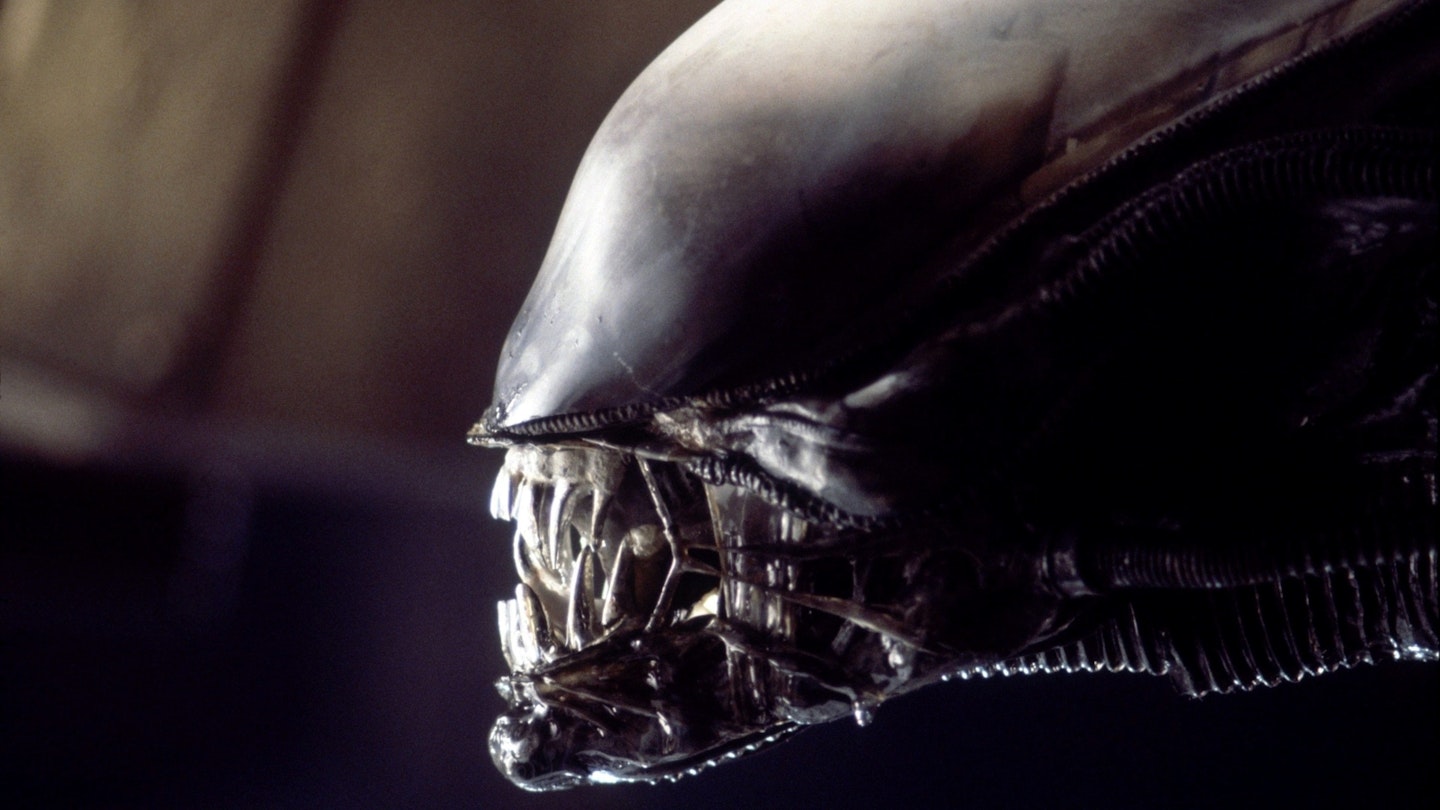
It's not easy to make a film that can rank among the best in both the horror genre and the world of science fiction, but Scott and writers Dan O'Bannon and Ronald Shusett make it look easy. It wasn't simple to wrangle everything together on a relatively tight budget, but the results are all up there on the screen. The sterile environment of the Nostromo might not seem like the most inviting place for terror, but space is dark, cold and horrifying and H.R. Giger's icky creation upped the fright levels. And then there's that cast, topped by Sigourney Weaver as Ellen Ripley, one of the greatest characters in movie history. In the cinema, or at home, everyone will hear you scream.
Read the Empire review here.
1) The Shining (1980)
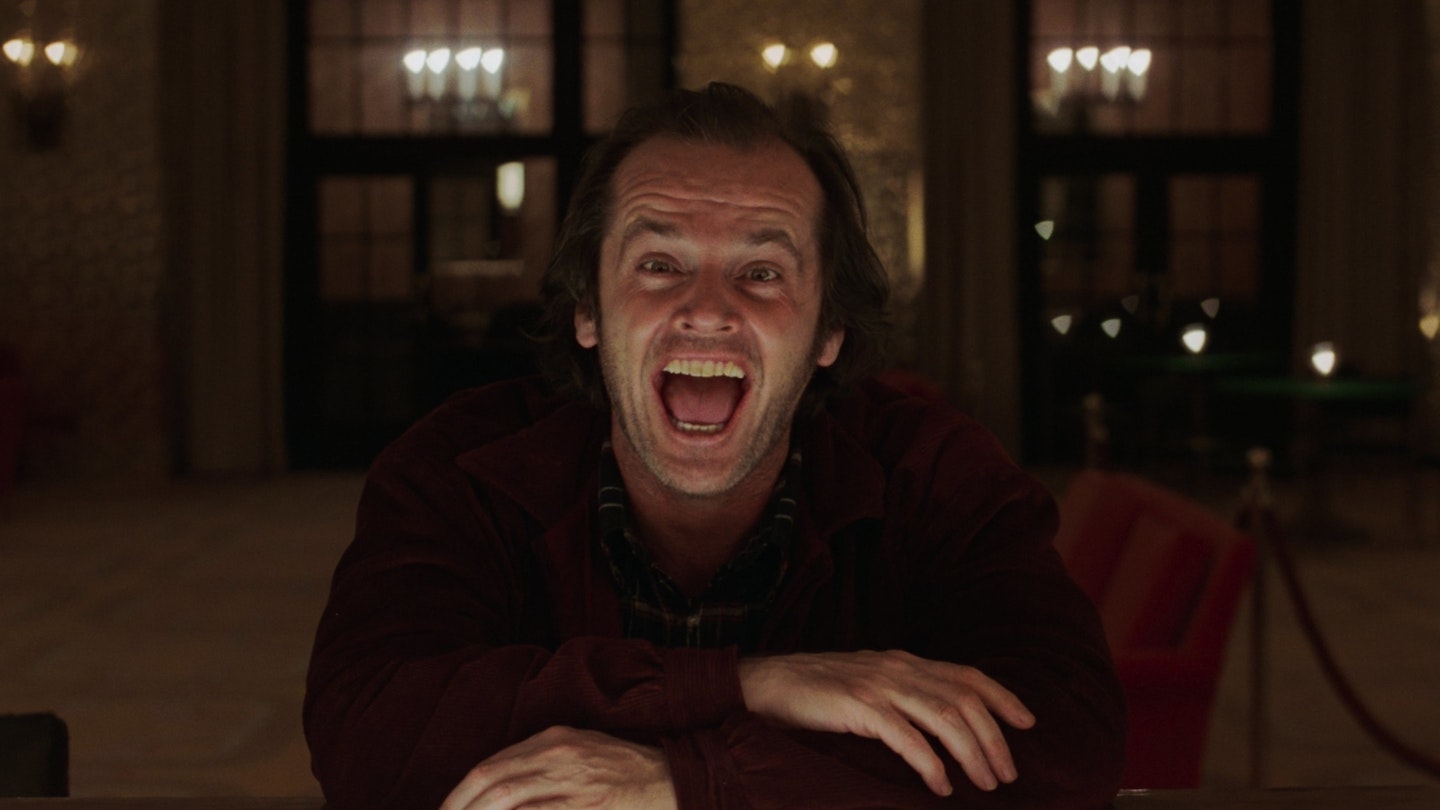
Stephen King hates it, of course. Contemporary critics were lukewarm. Initial box-office returns were middling. The Academy Awards flatly ignored it. Stanley Kubrick, unbelievably, was even nominated for a 'Worst Director' award at the inaugural Razzies. (He 'lost' to Robert Greenwald's Xanadu). It wasn't a fun shoot either, by all accounts. Kubrick forced Shelley Duvall to do 127 takes of one scene, a record according to The Guinness Book Of Records. The infamous "Here's Johnny!" scene took three days and 60 doors. Both lead actors left the shoot exhausted and resentful. What a difference a bit of hindsight makes. As with a lot of Kubrick's work, time has been kind, and it now seems blindingly obvious that The Shining is a masterpiece without parallel: precise, meticulous, surreal, visually astonishing, a shimmering study of a descent into madness. The ultimate horror movie.
Read the Empire review here
